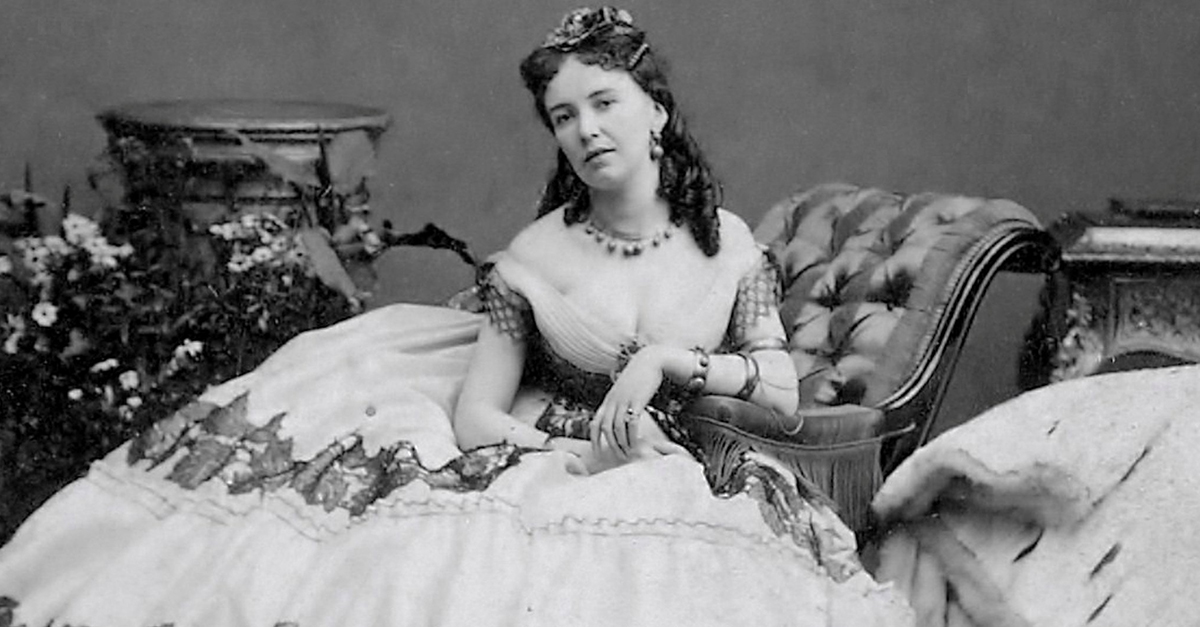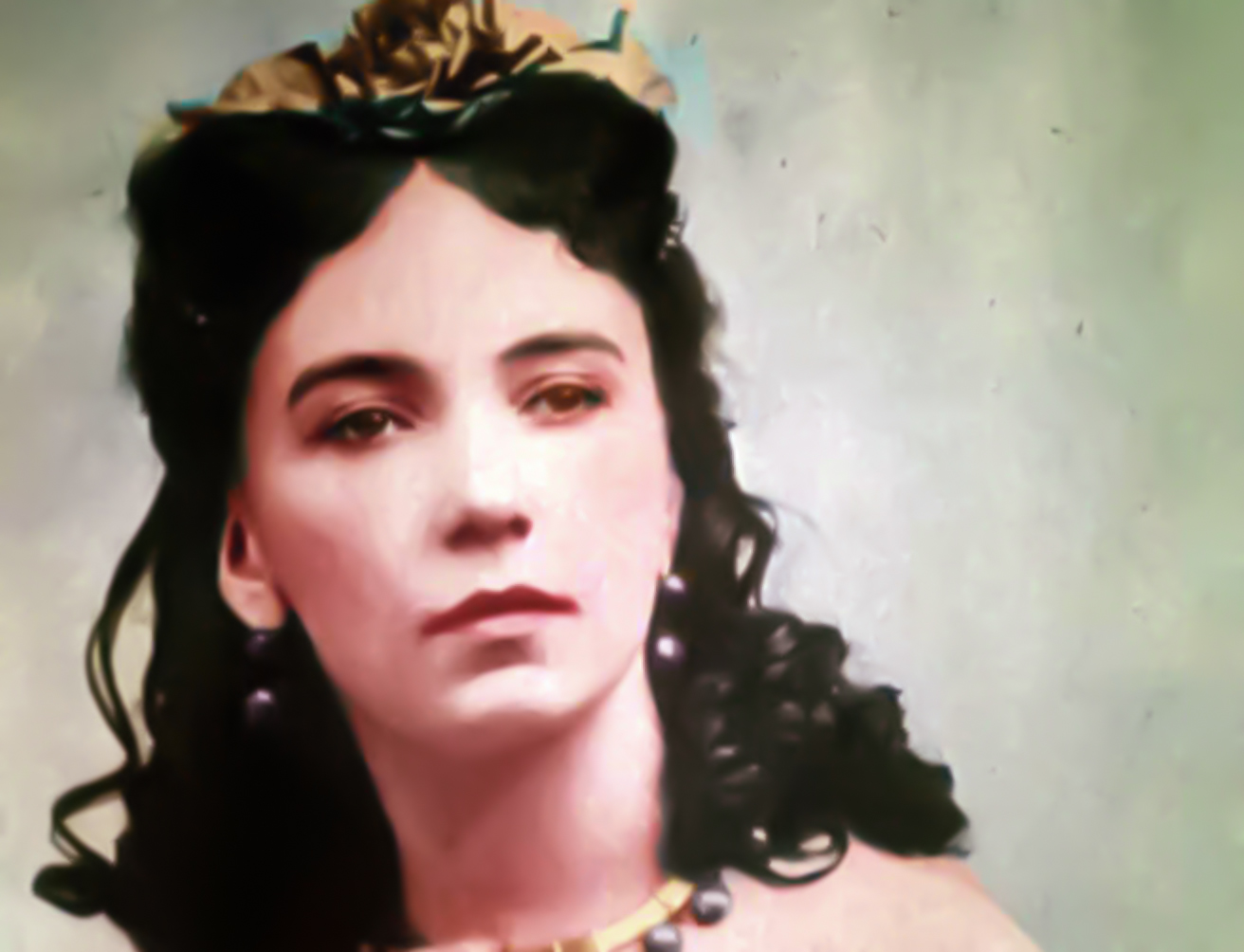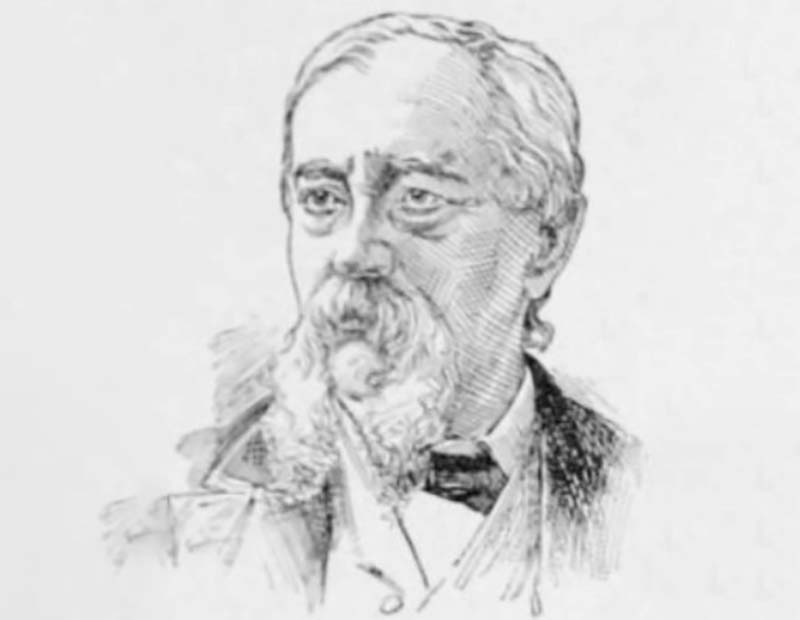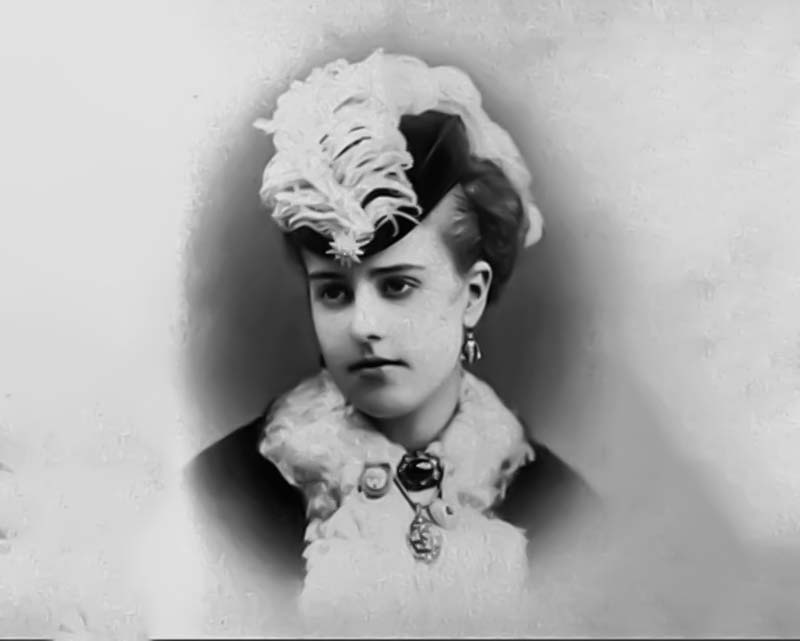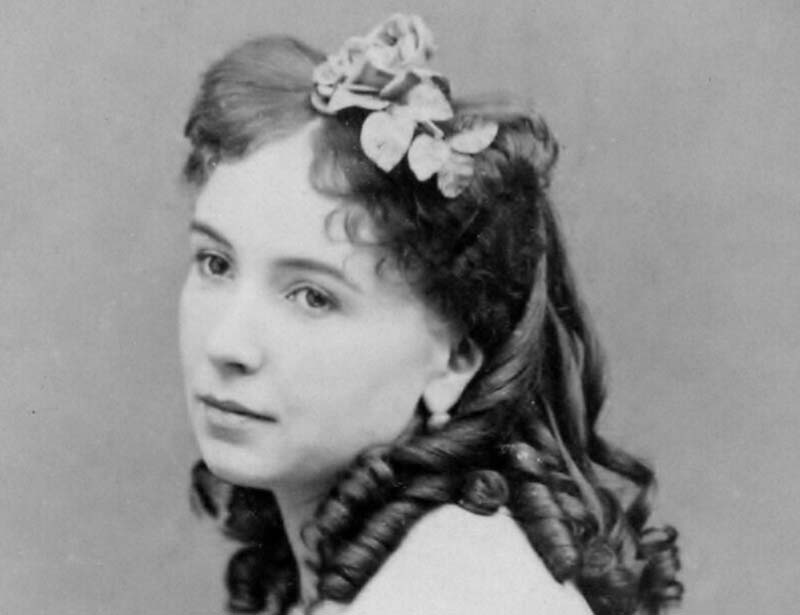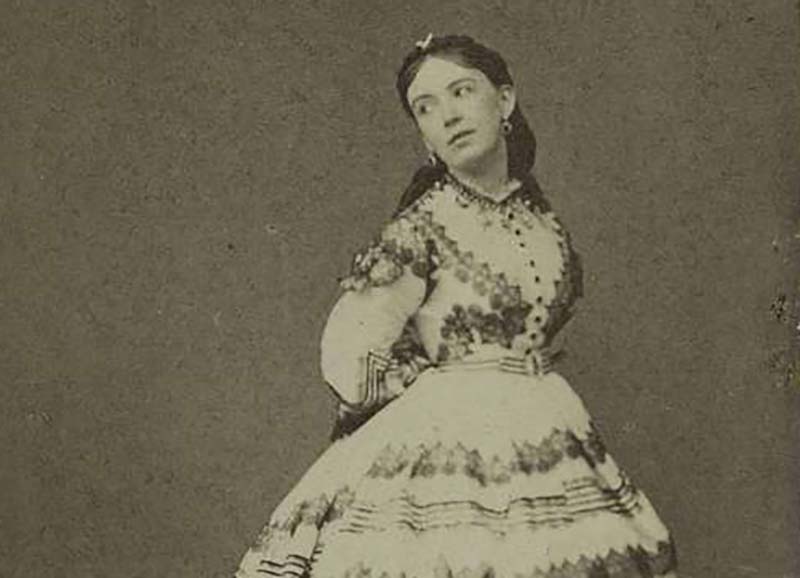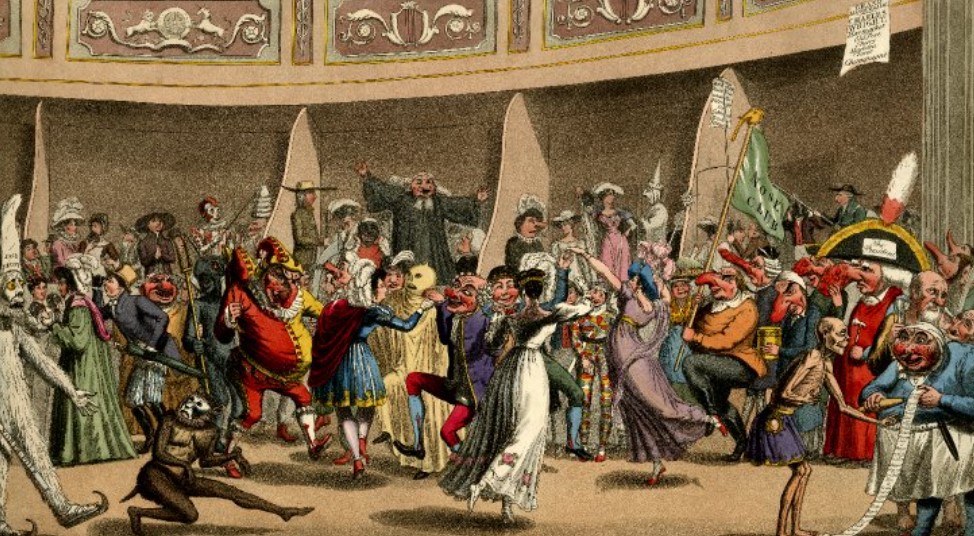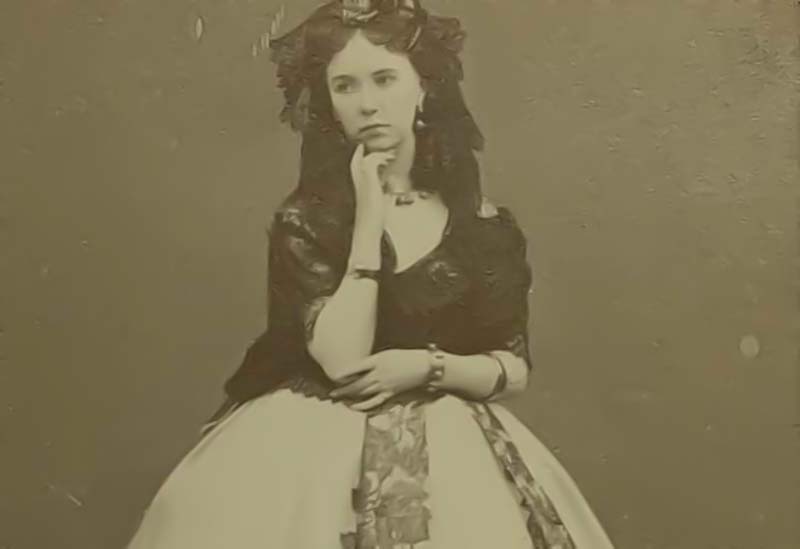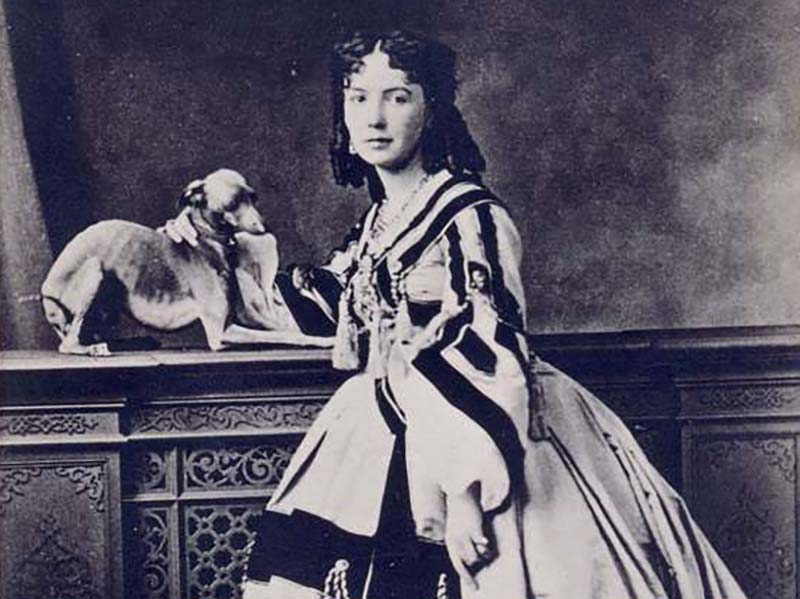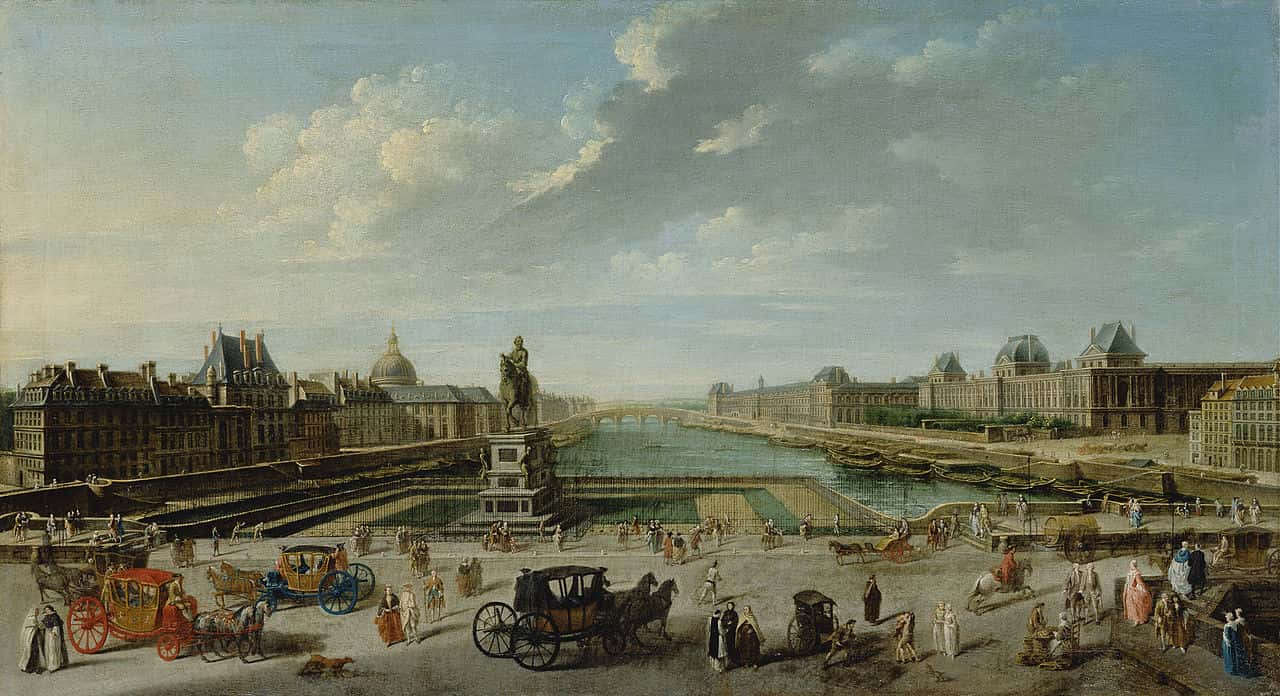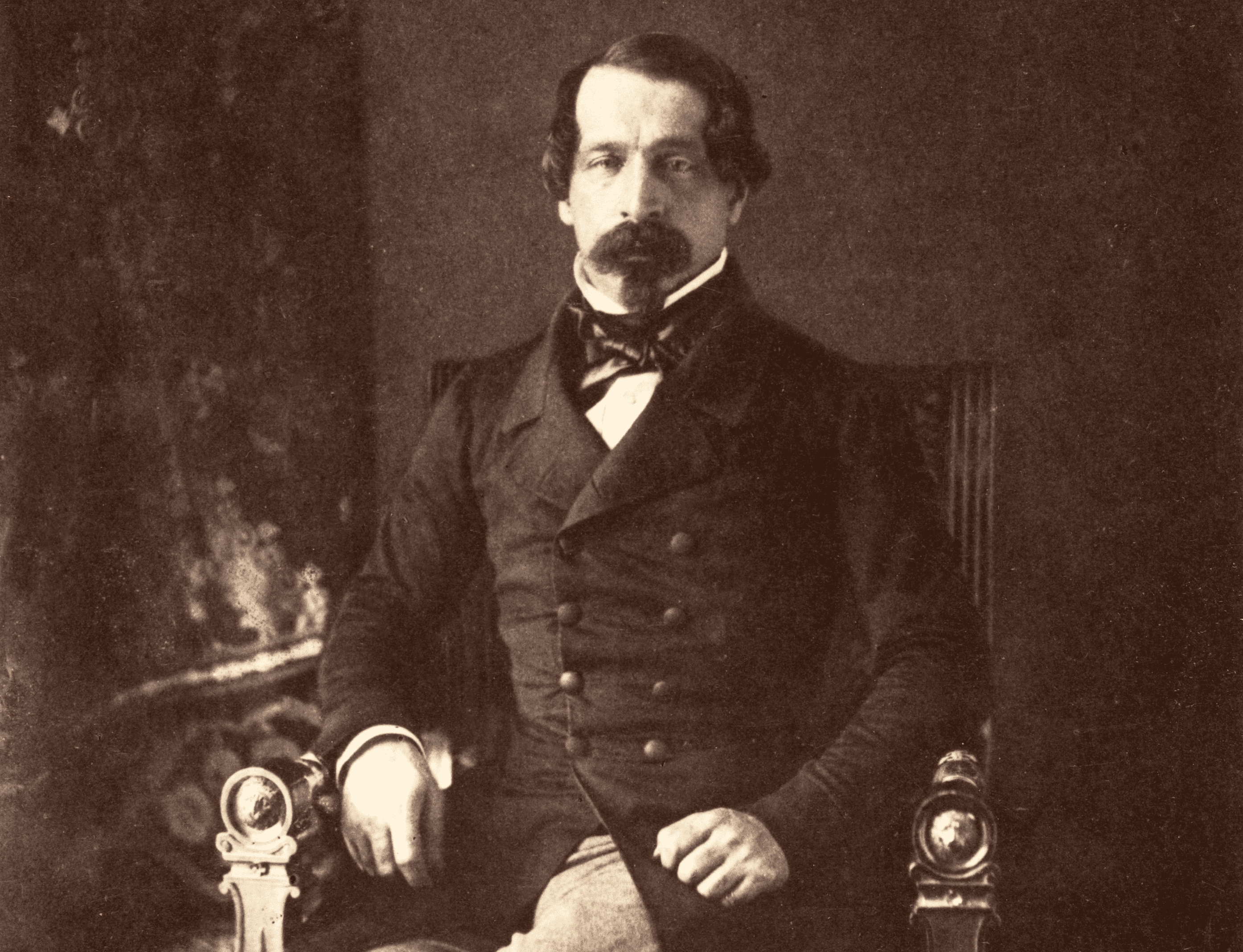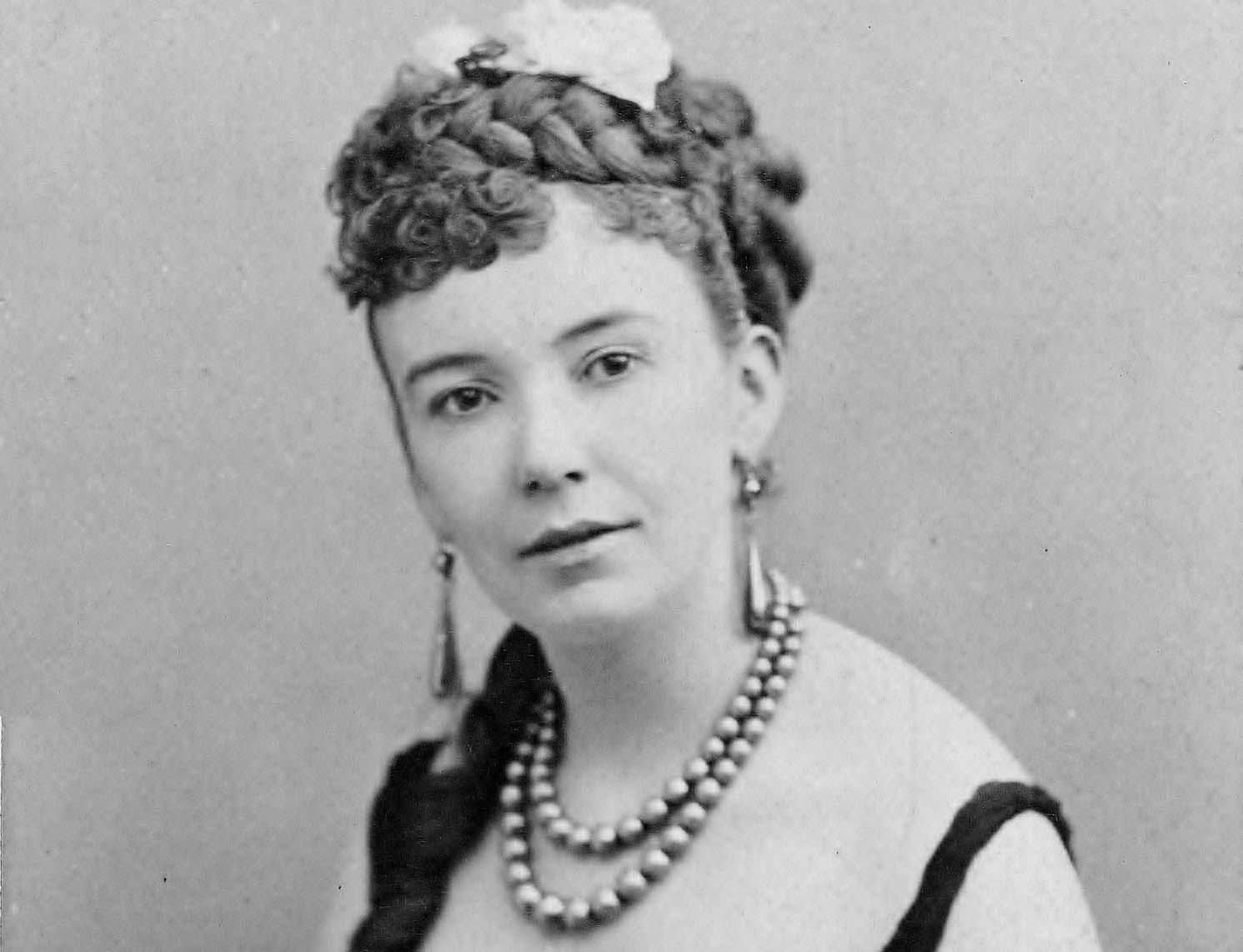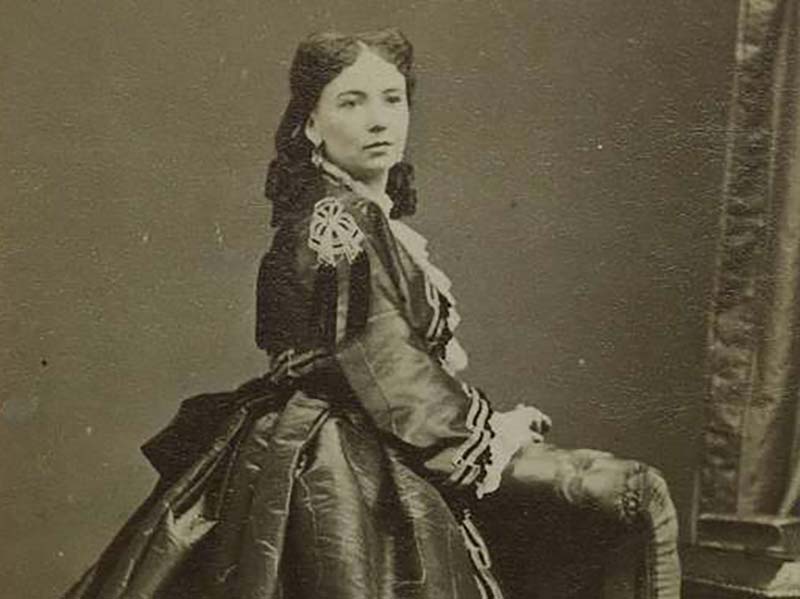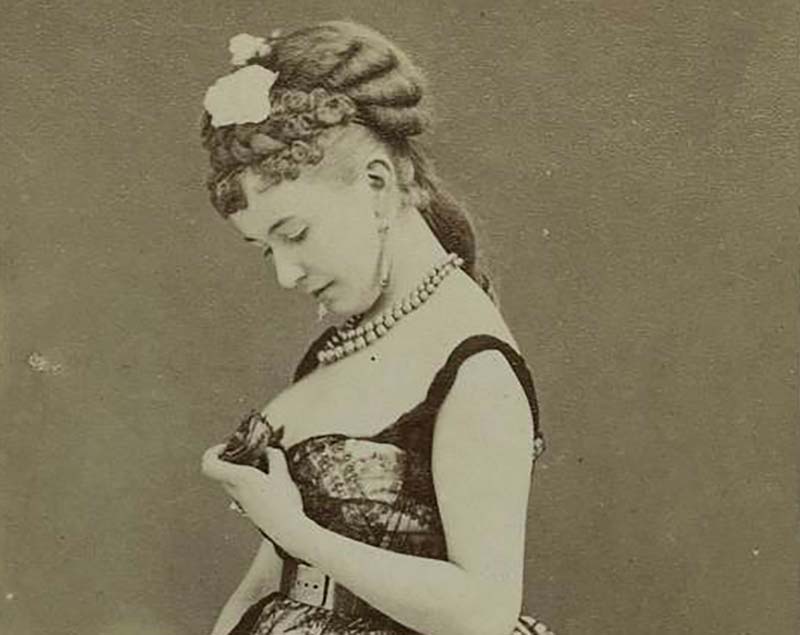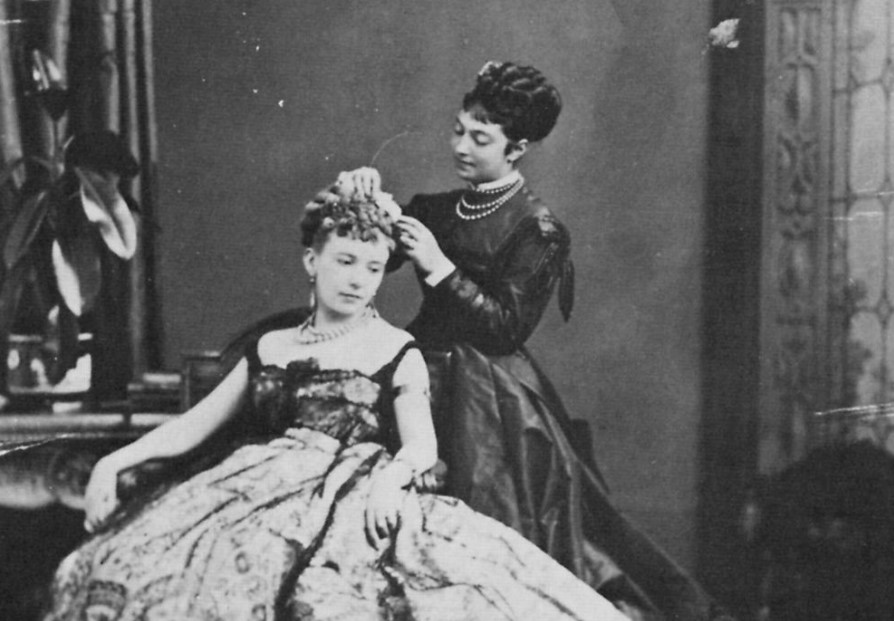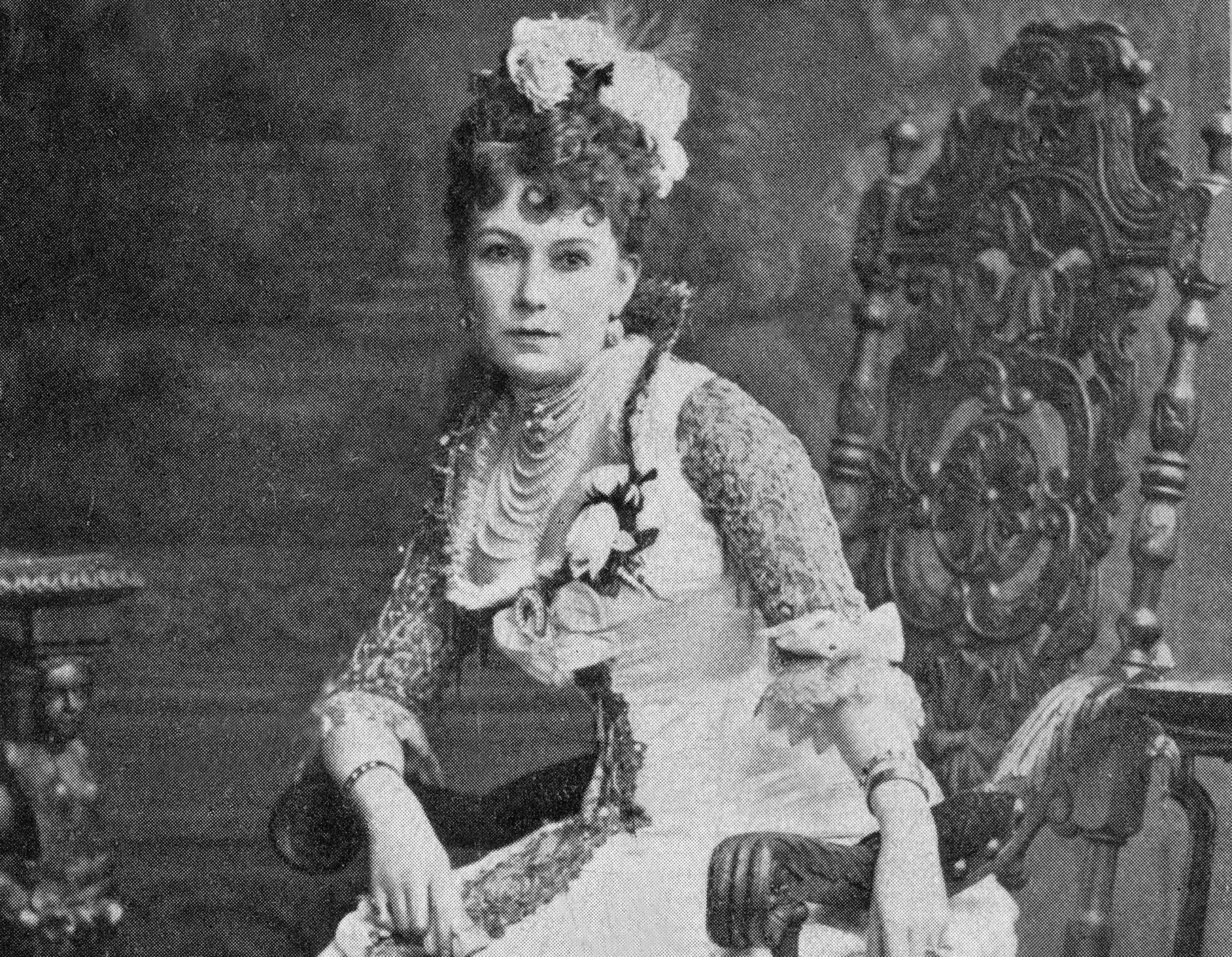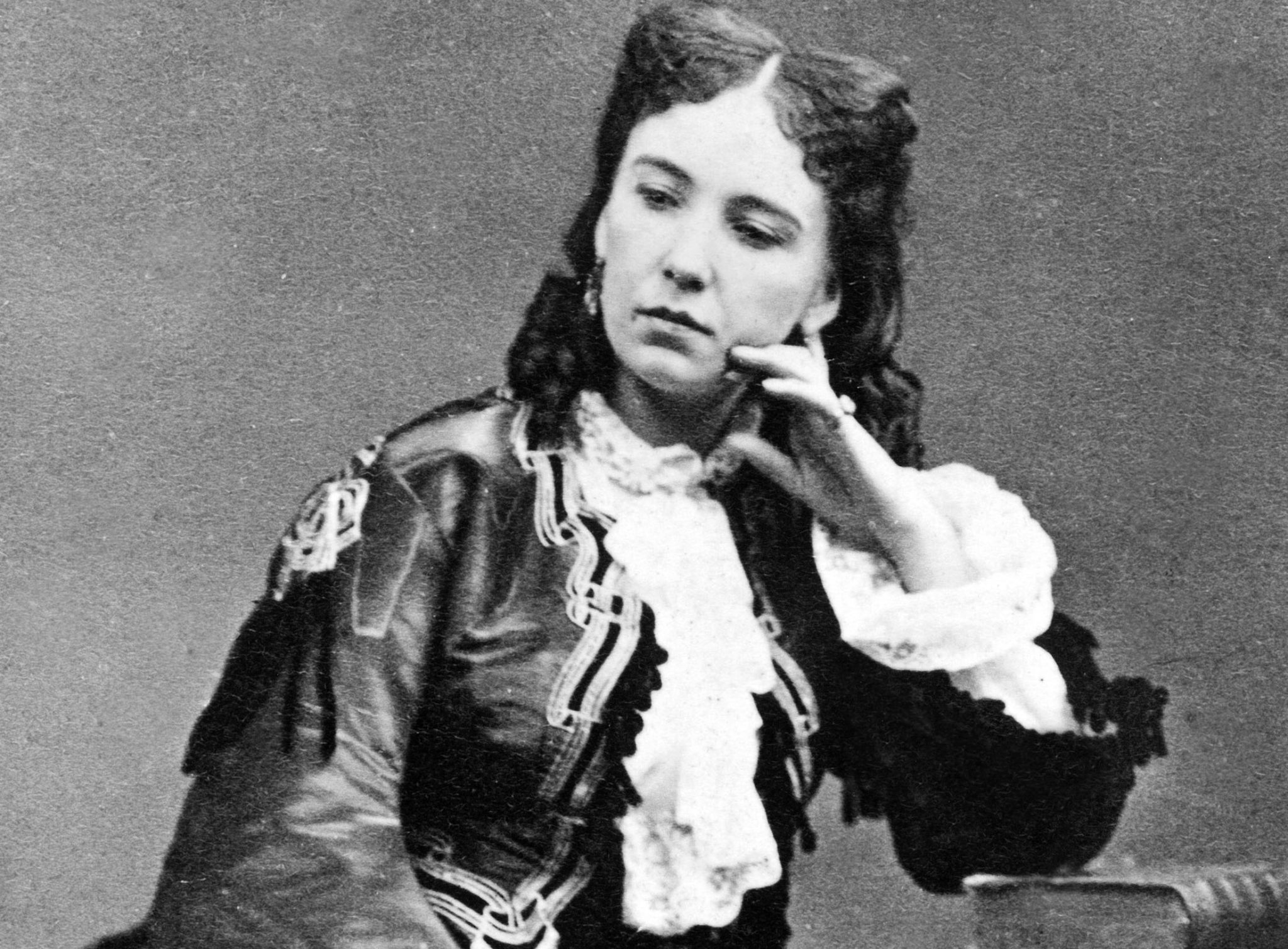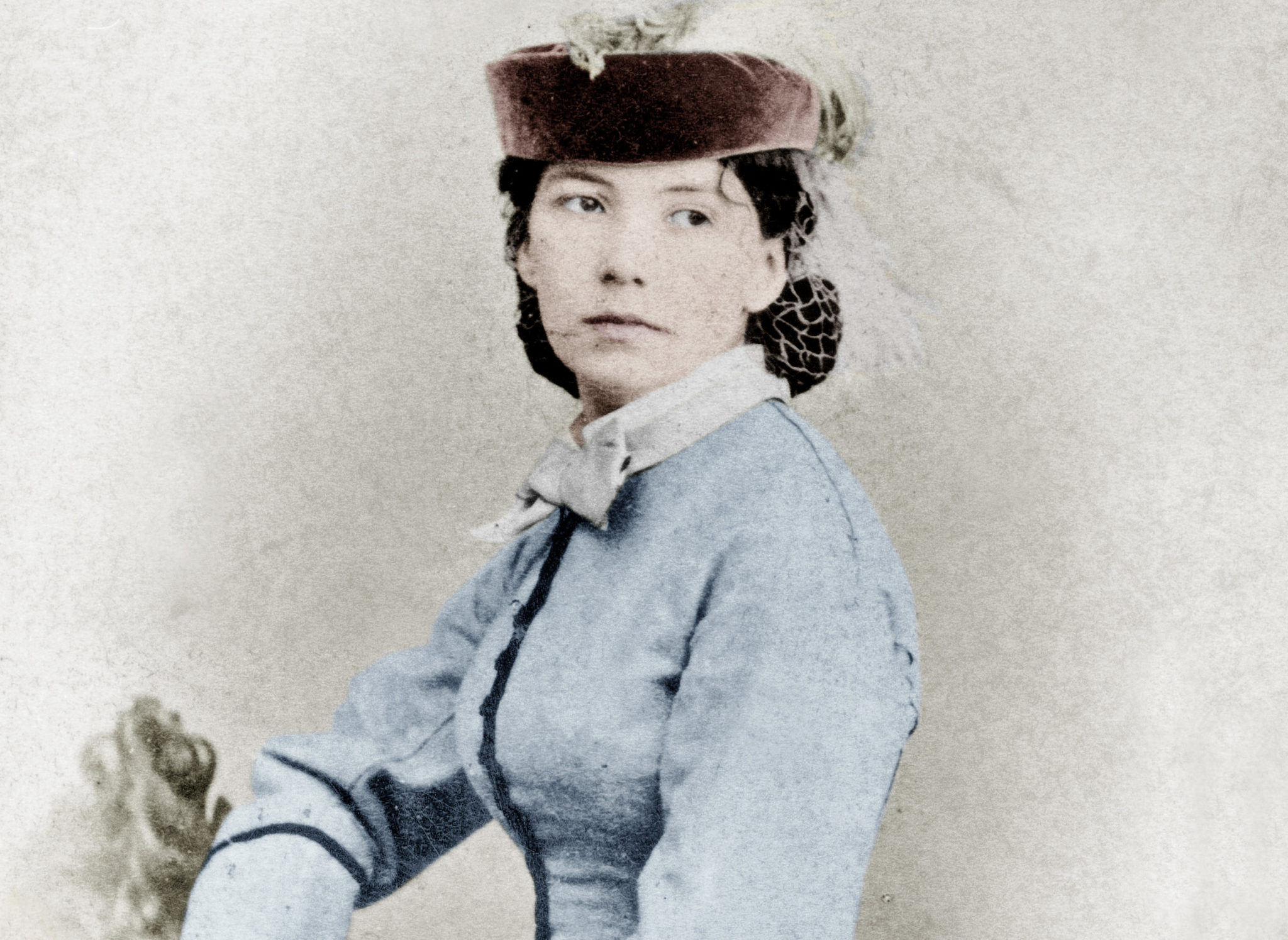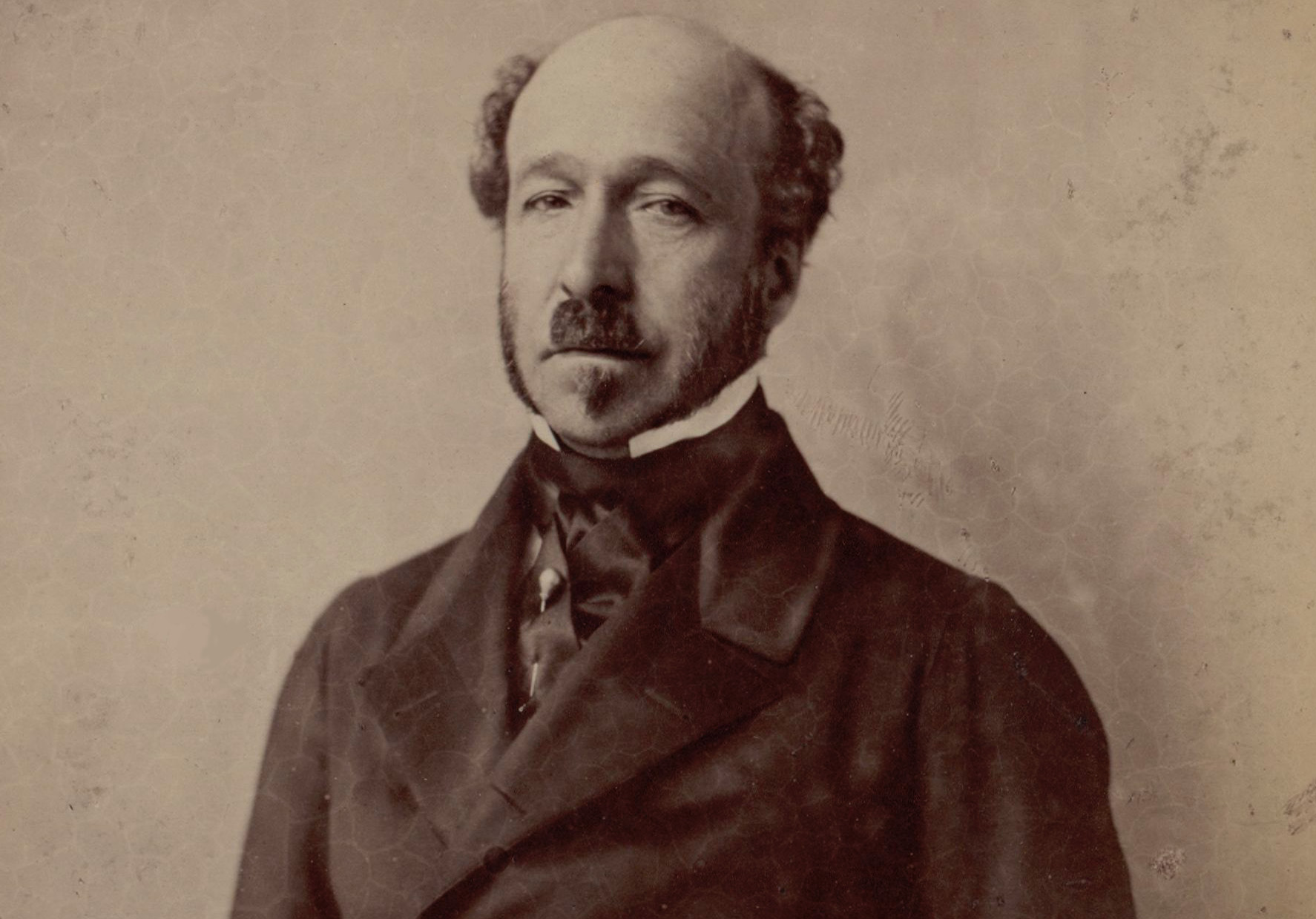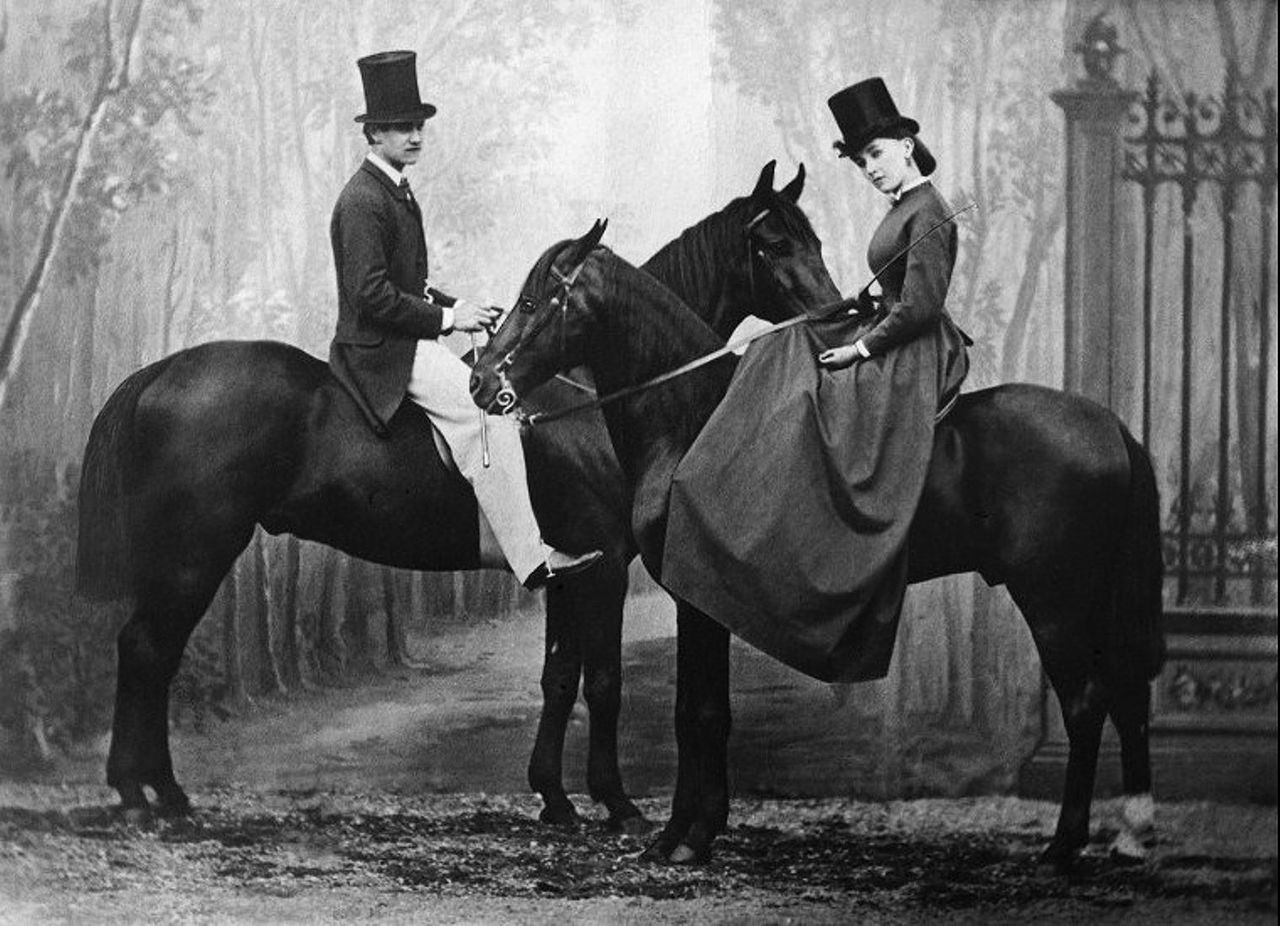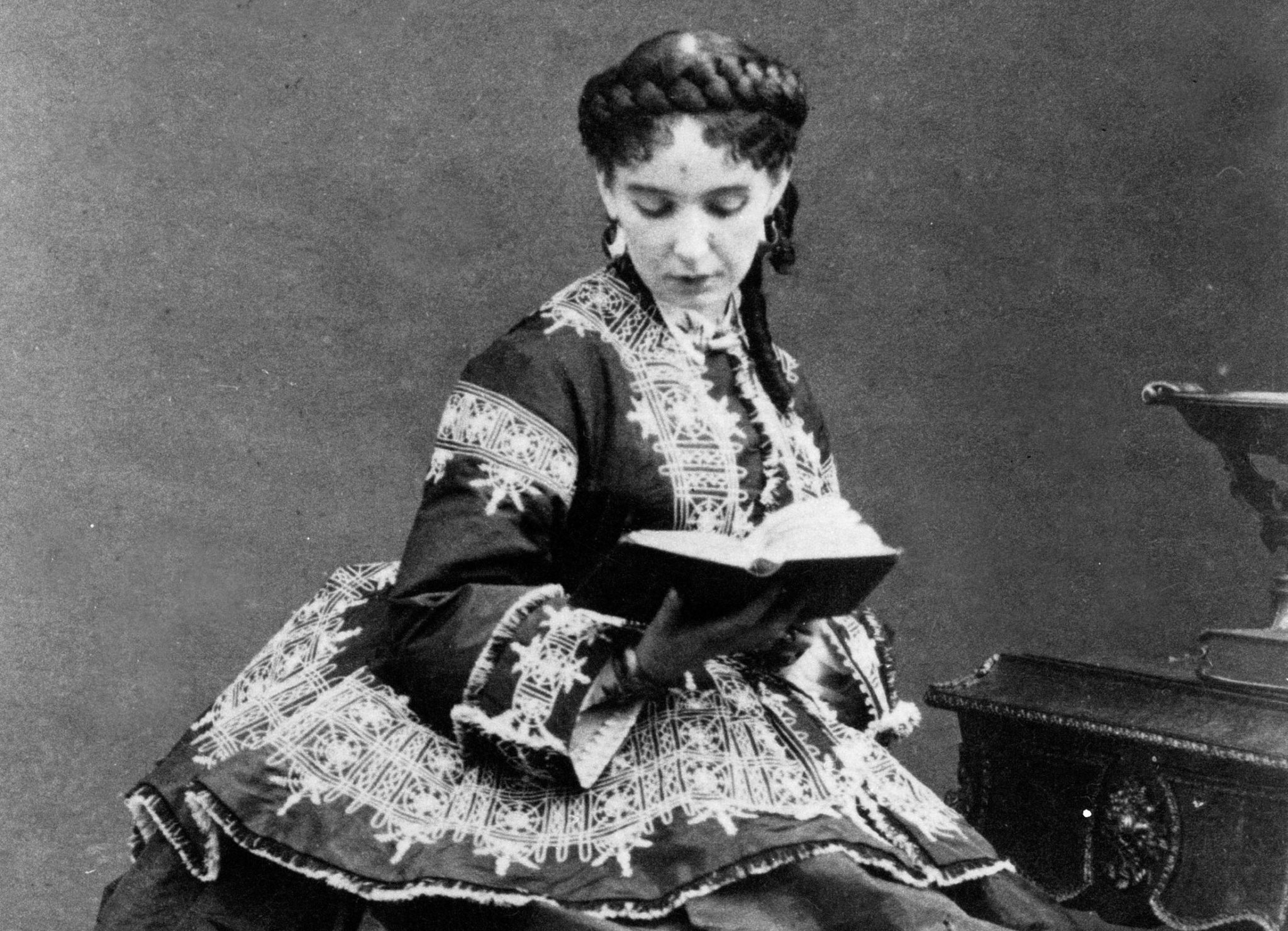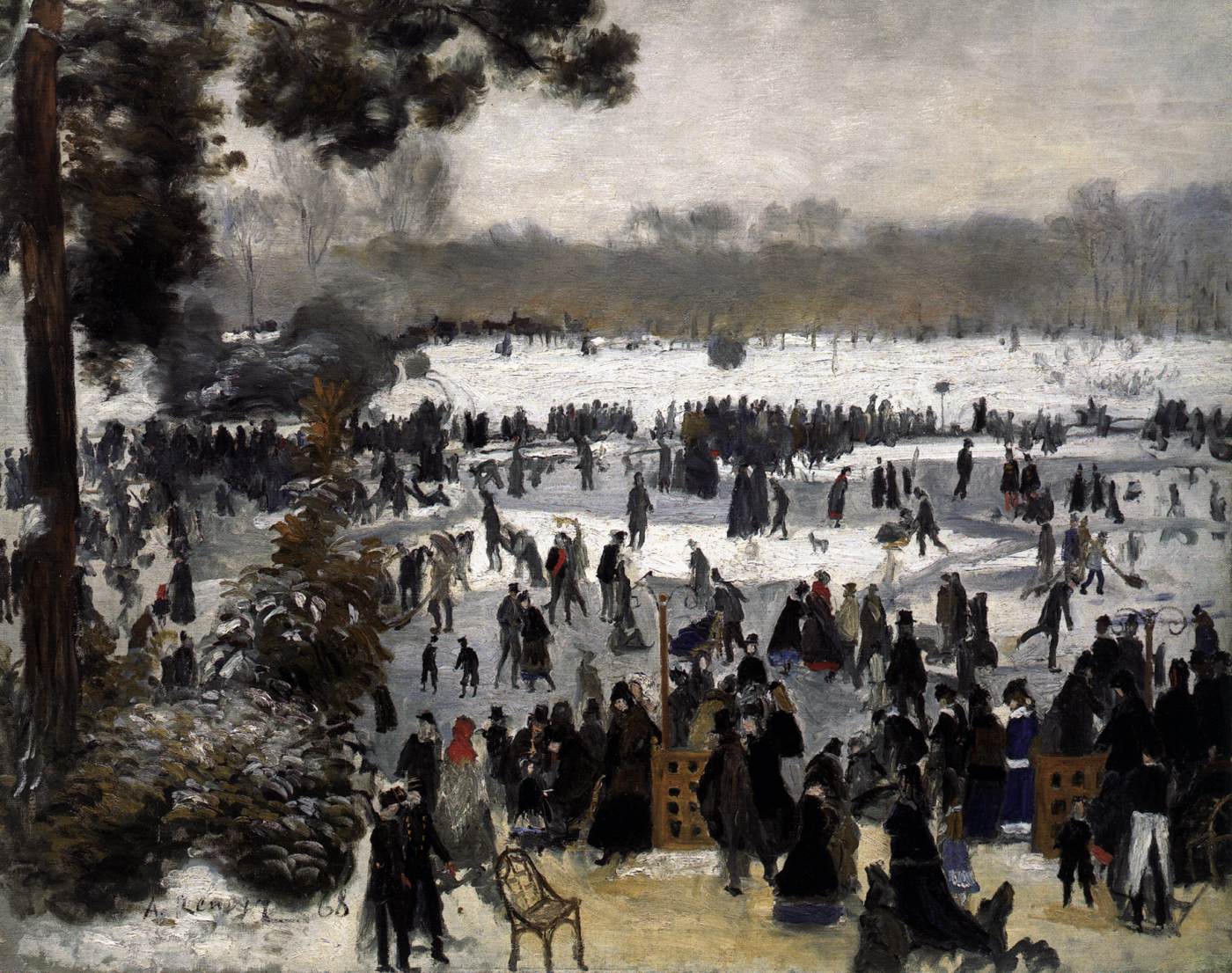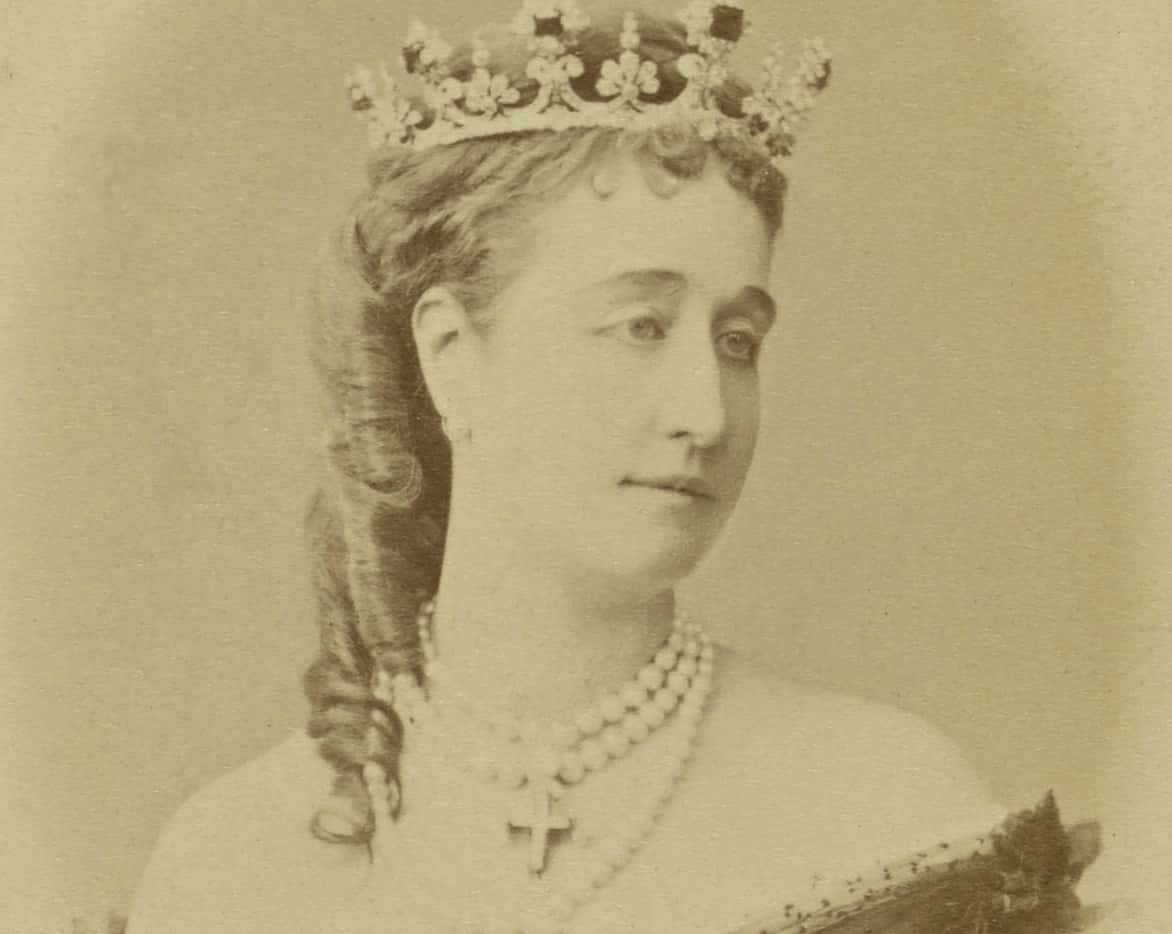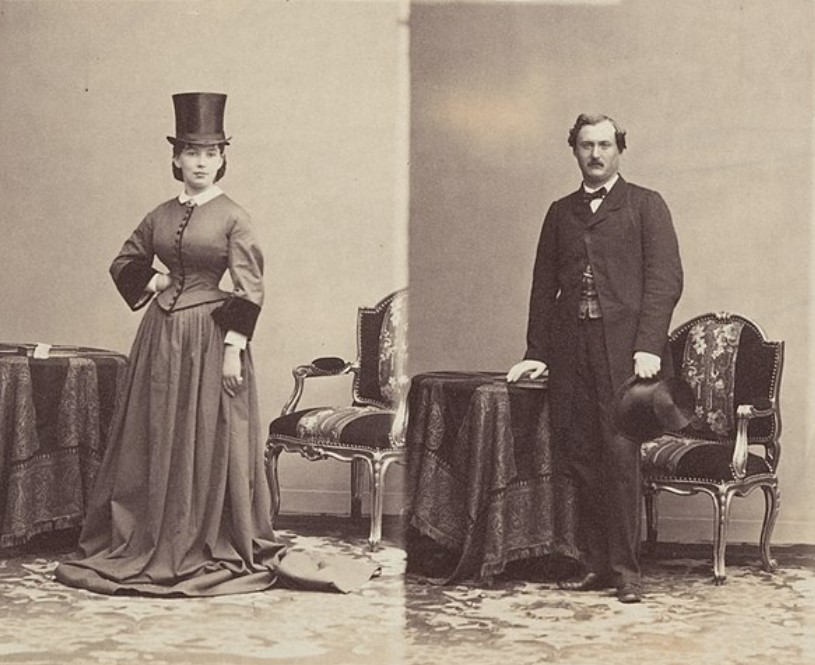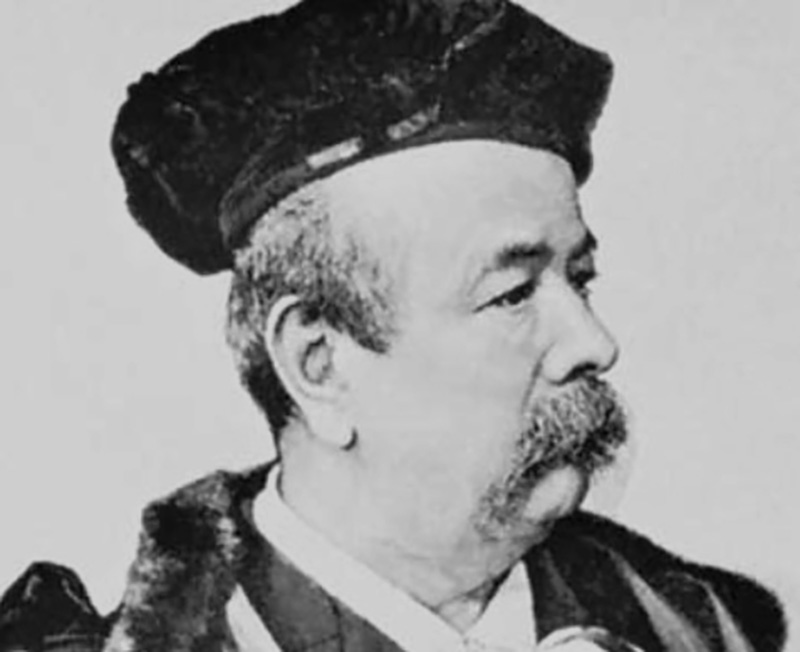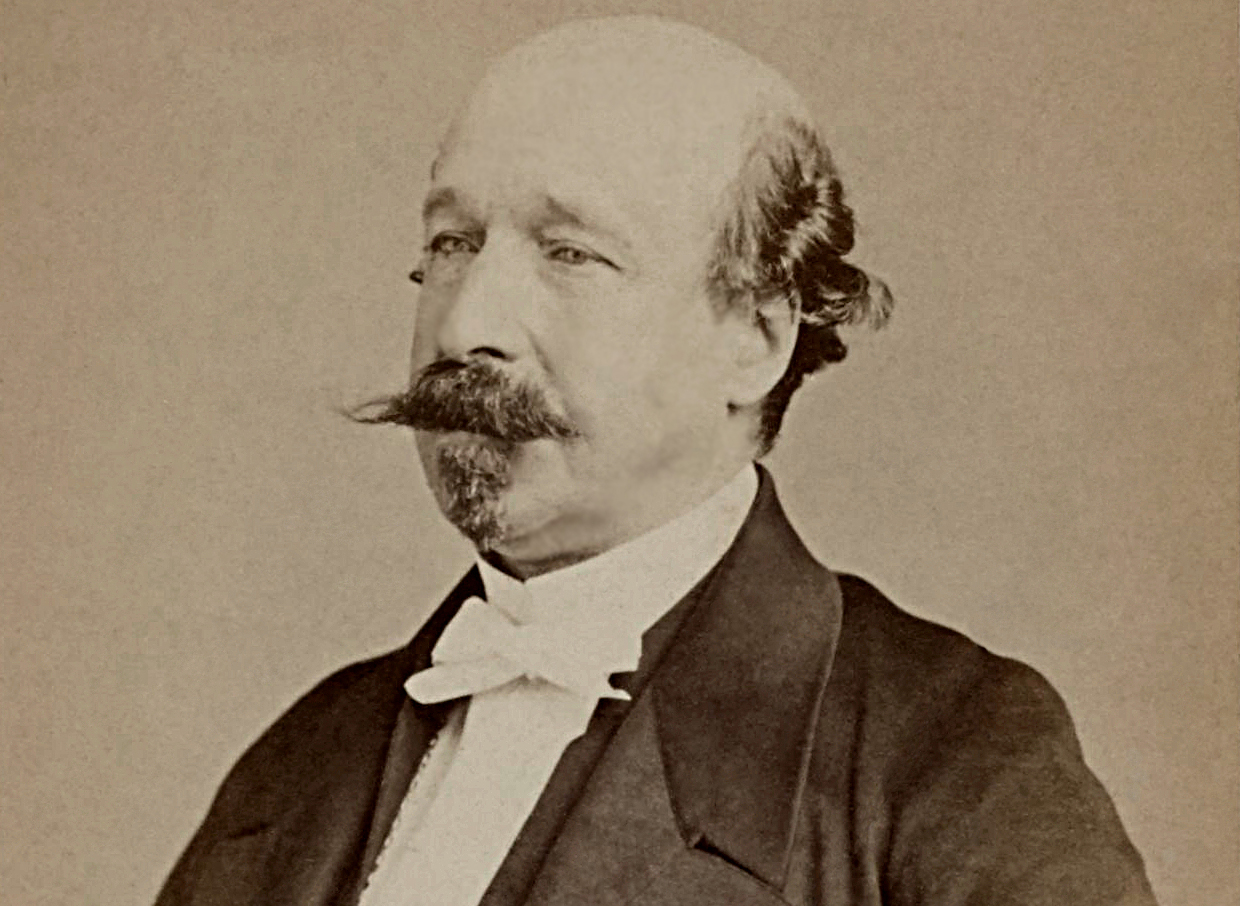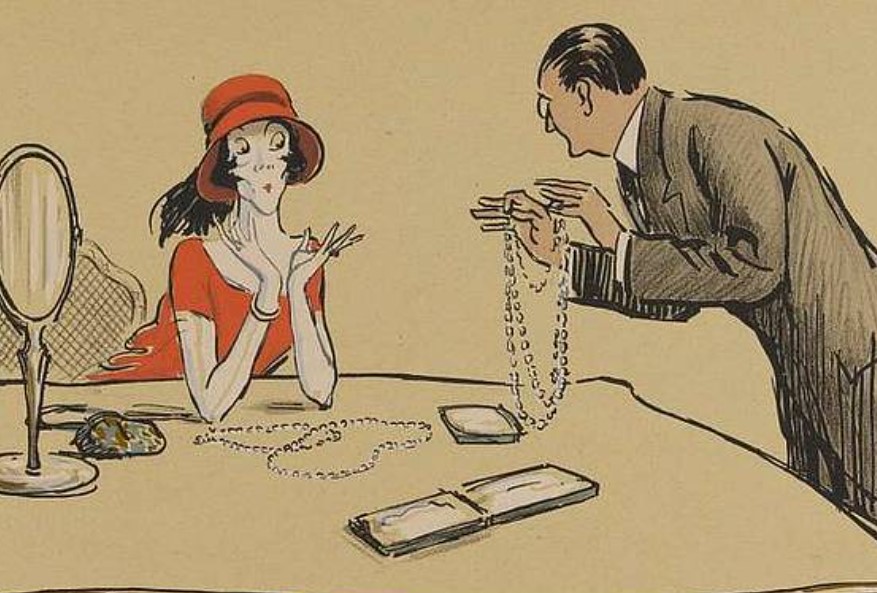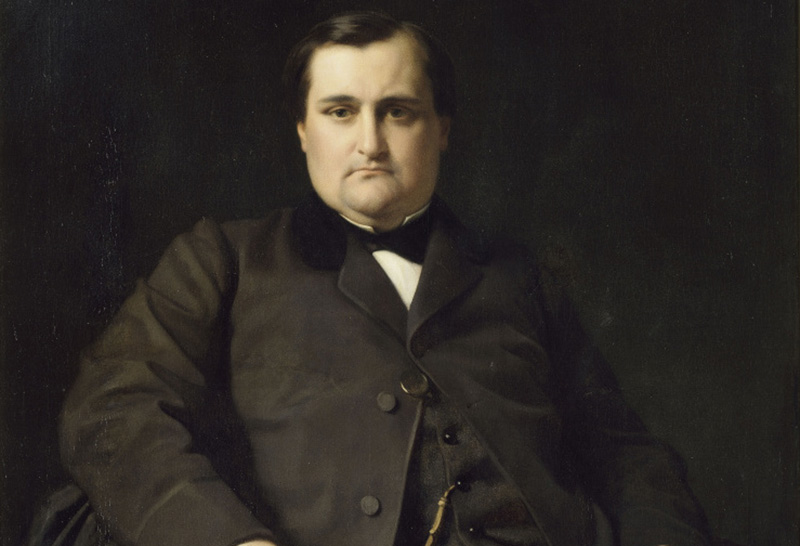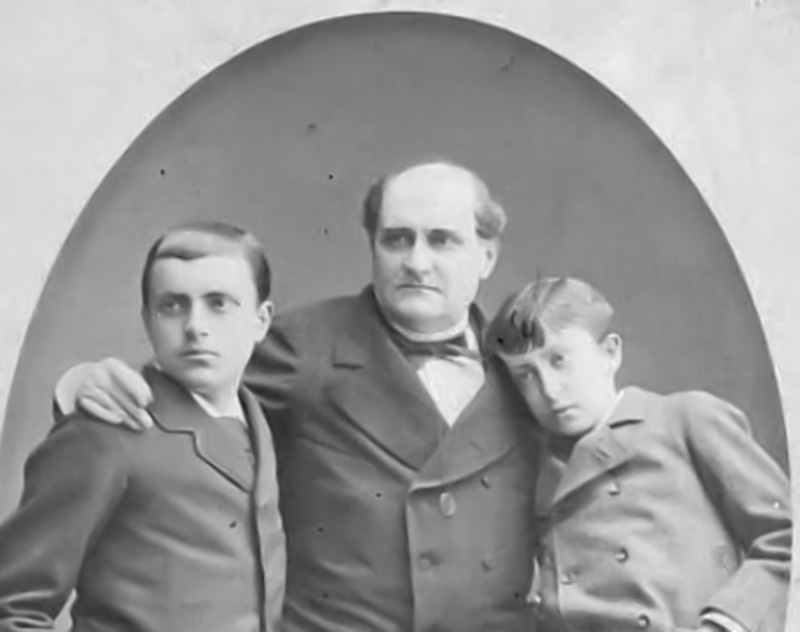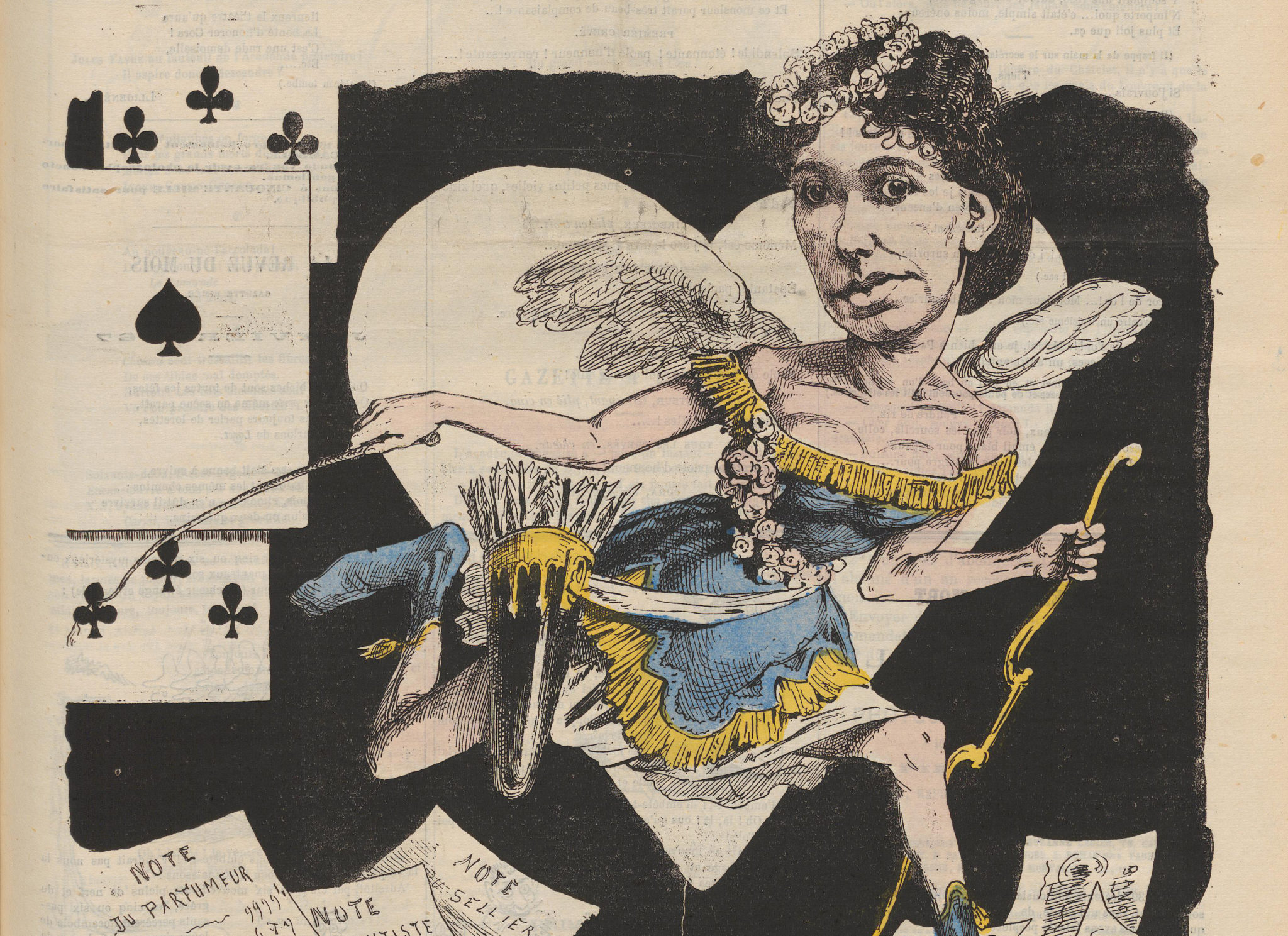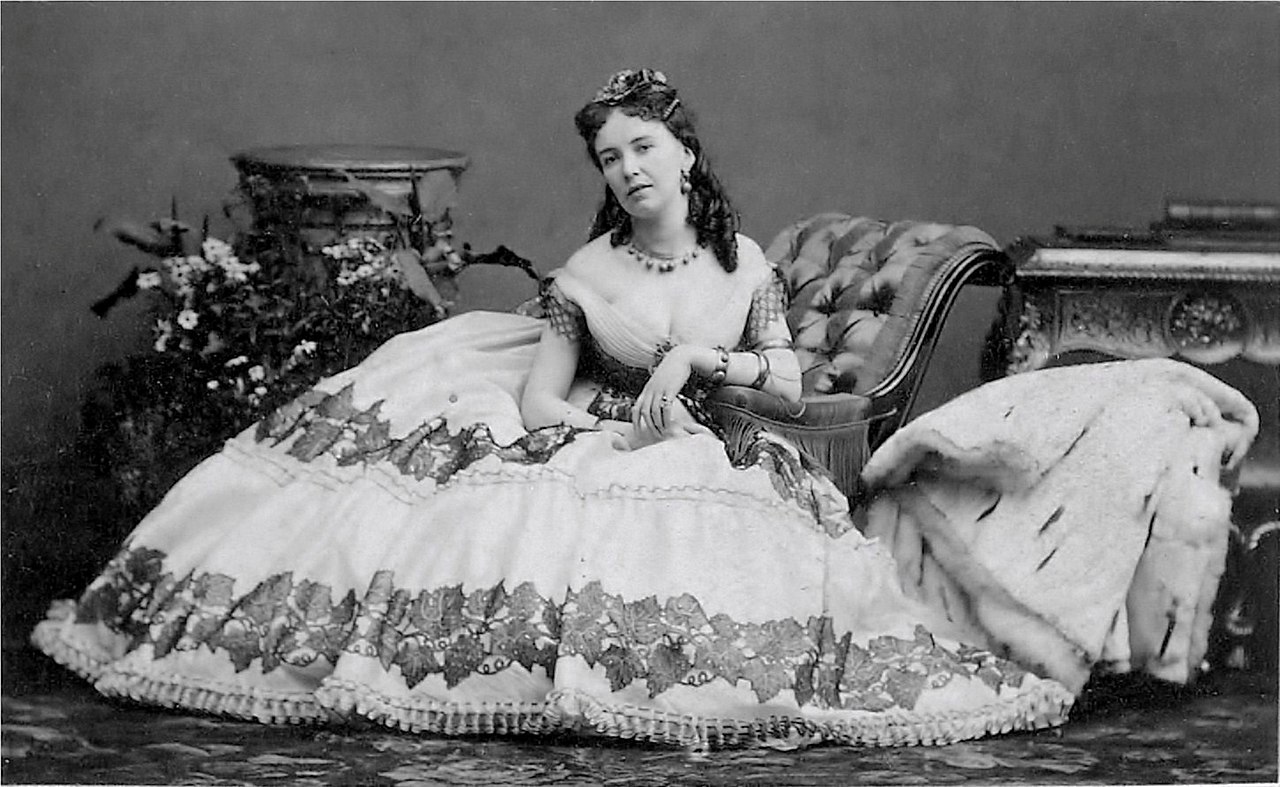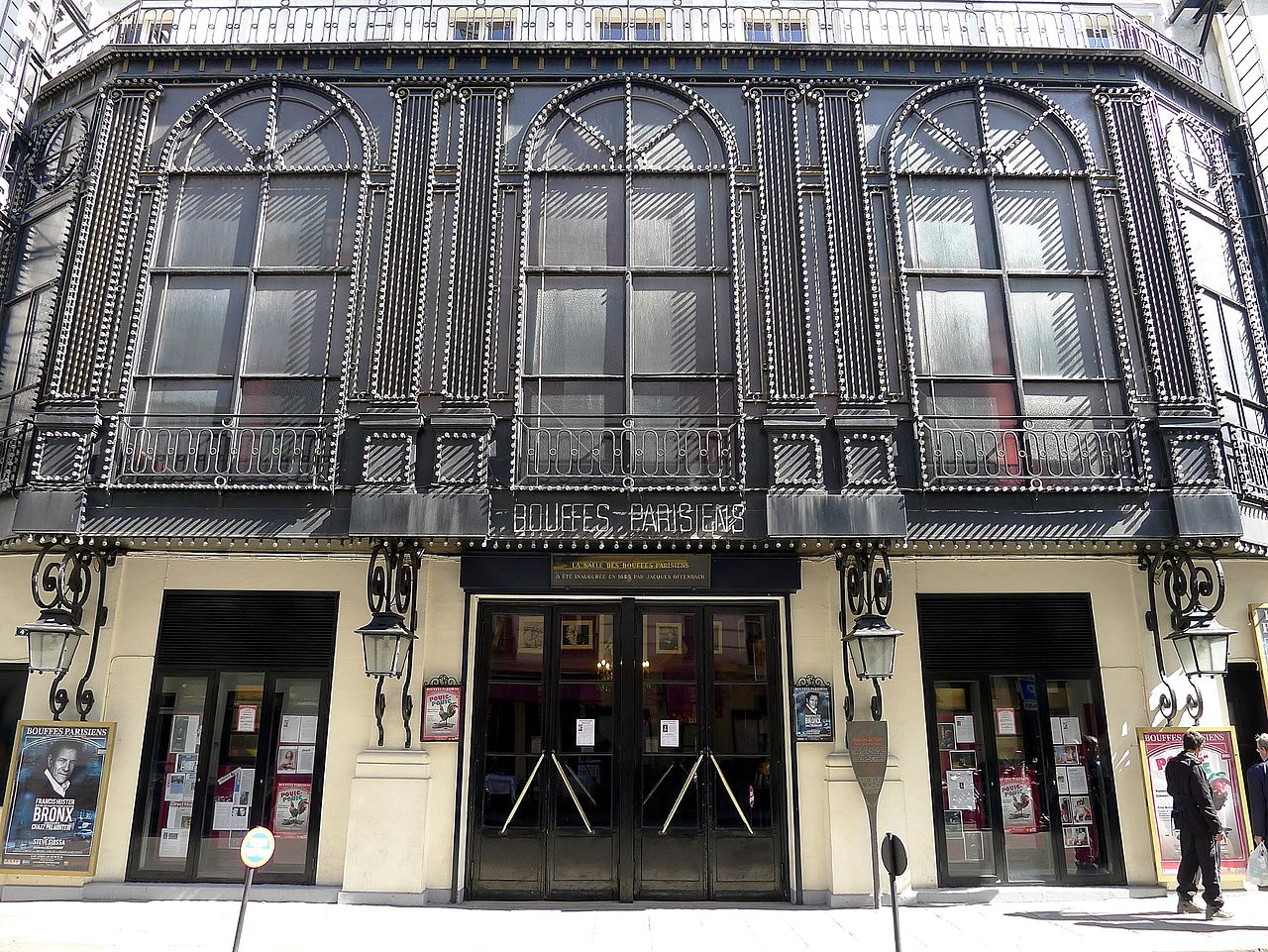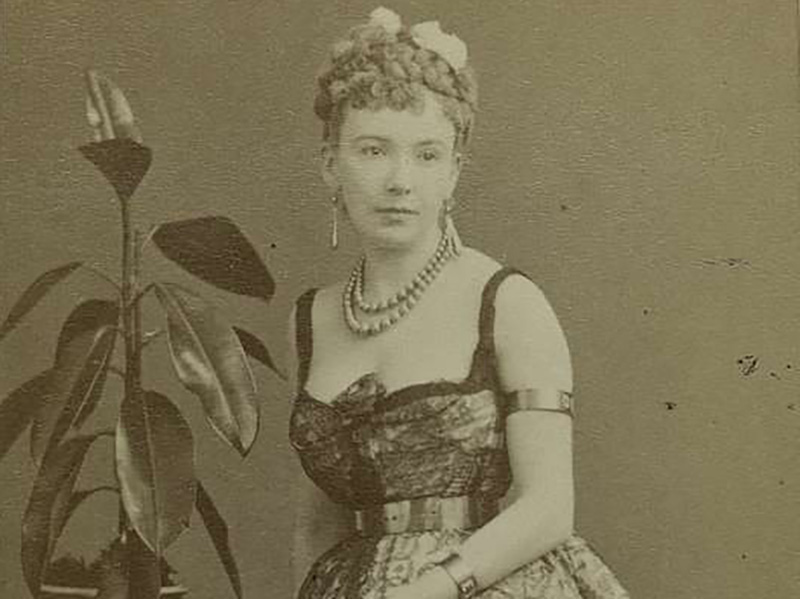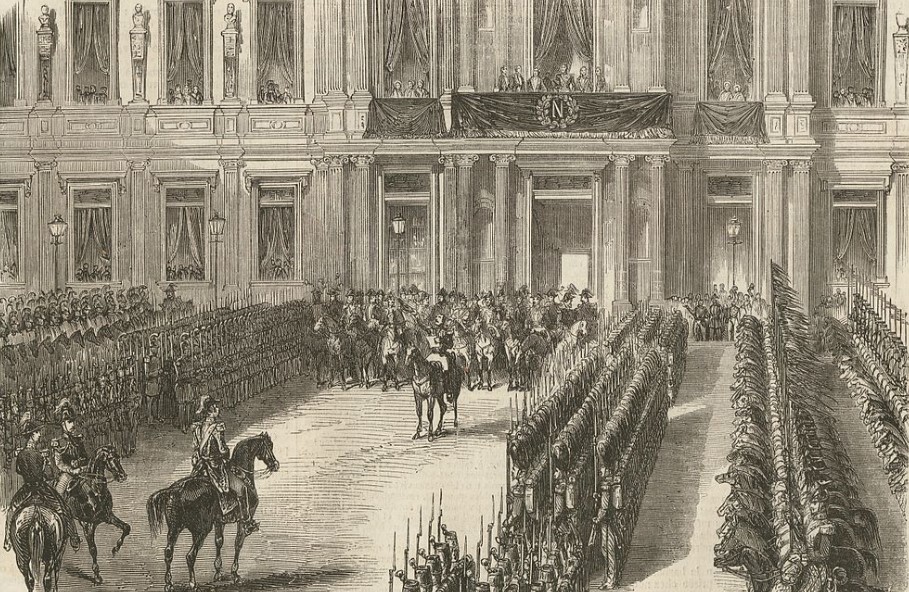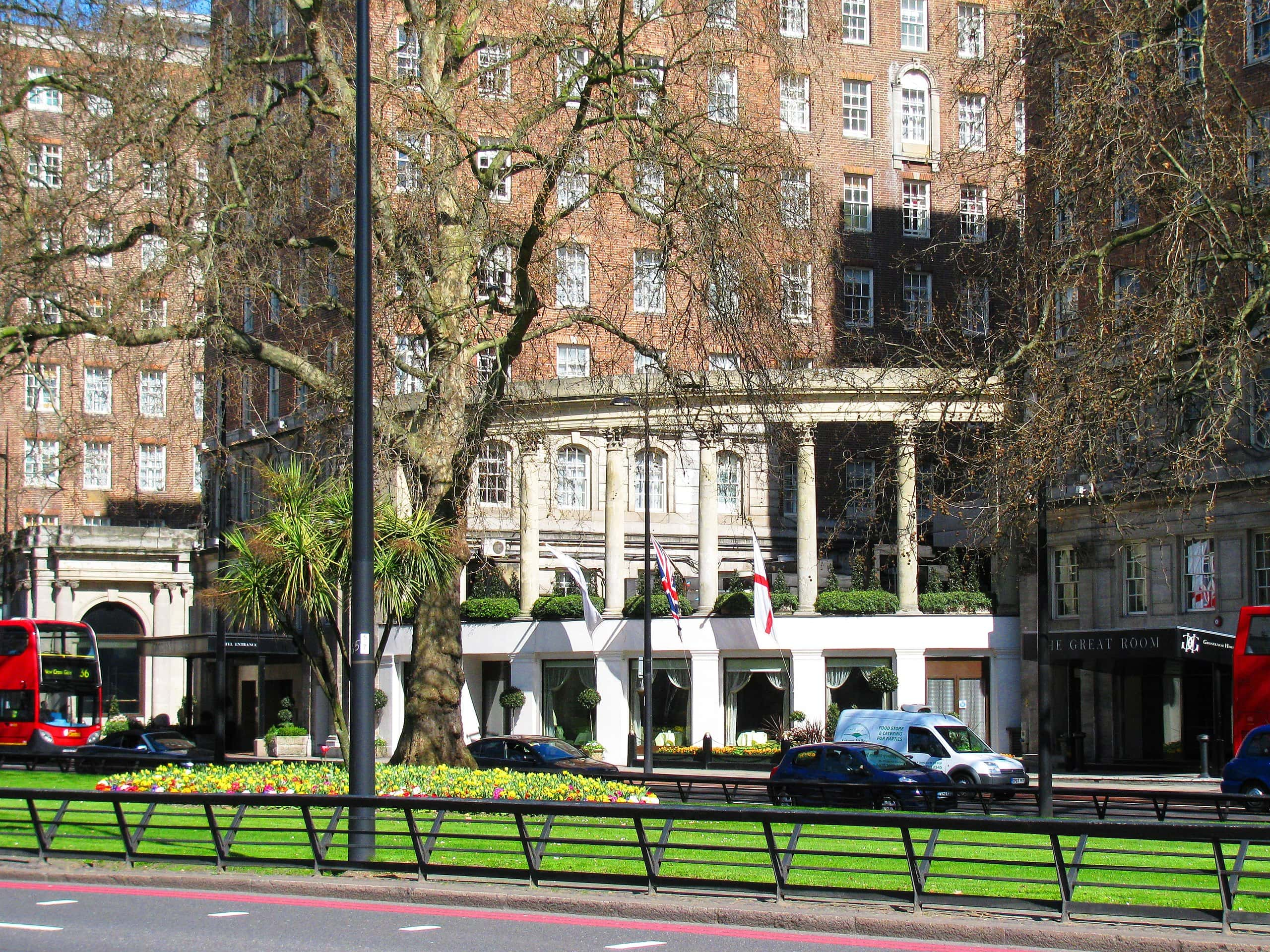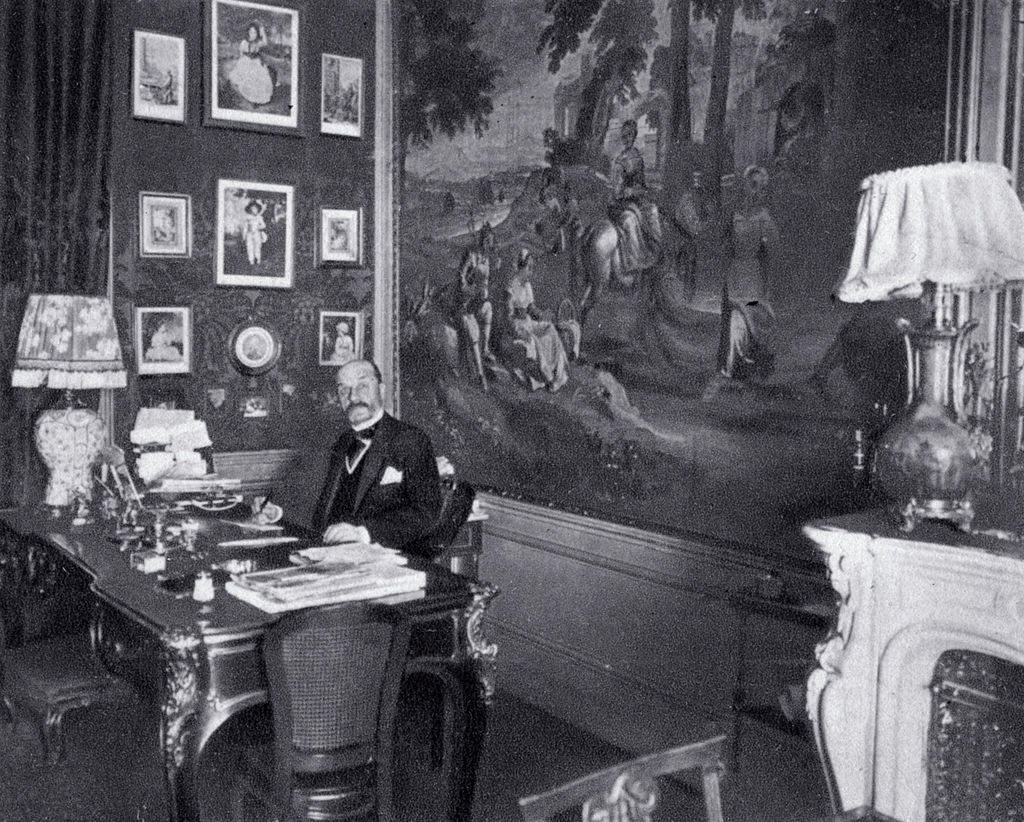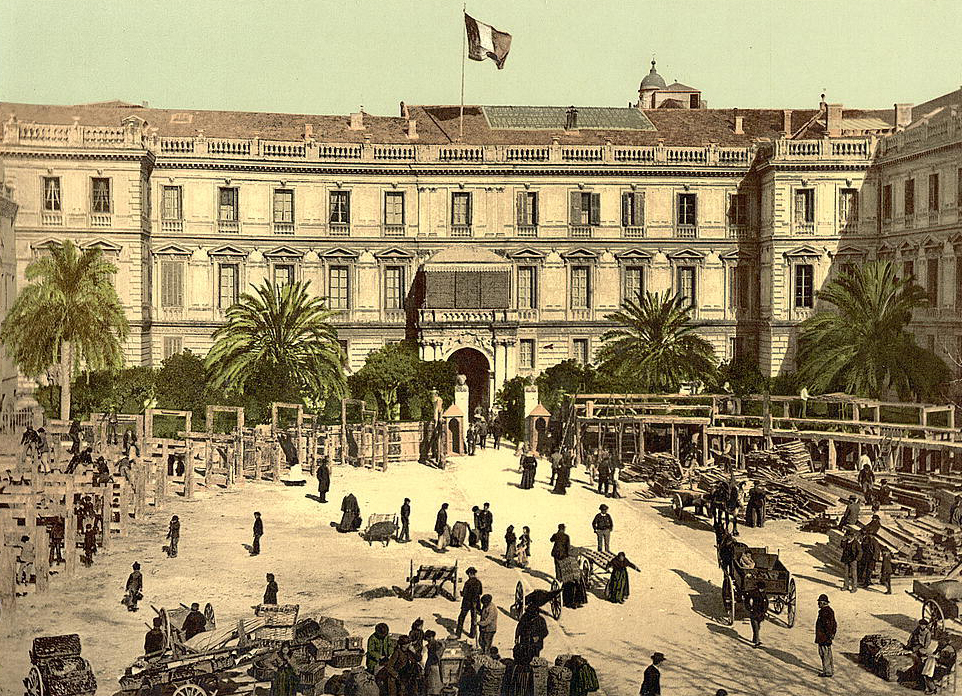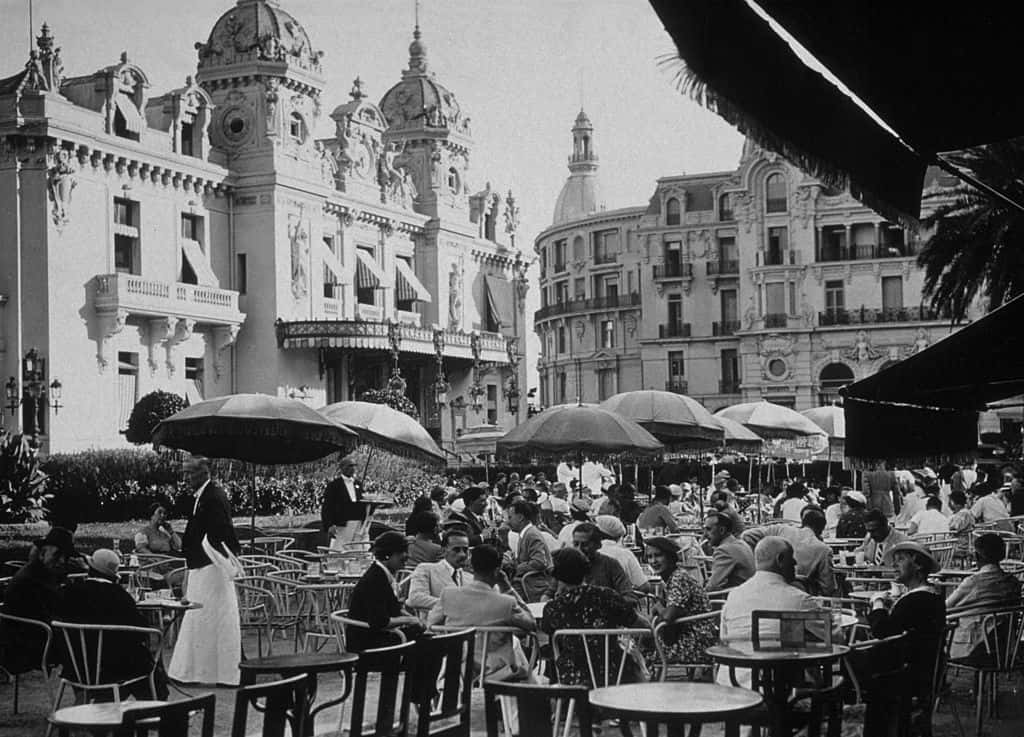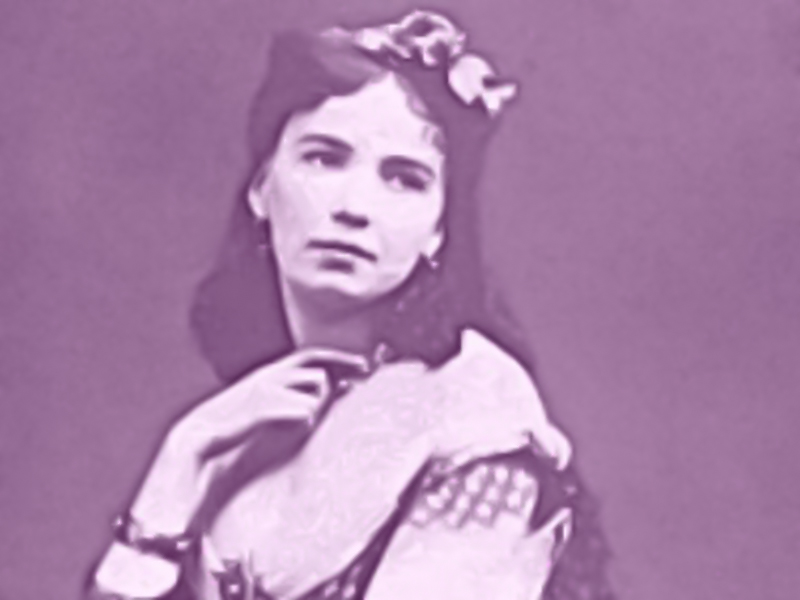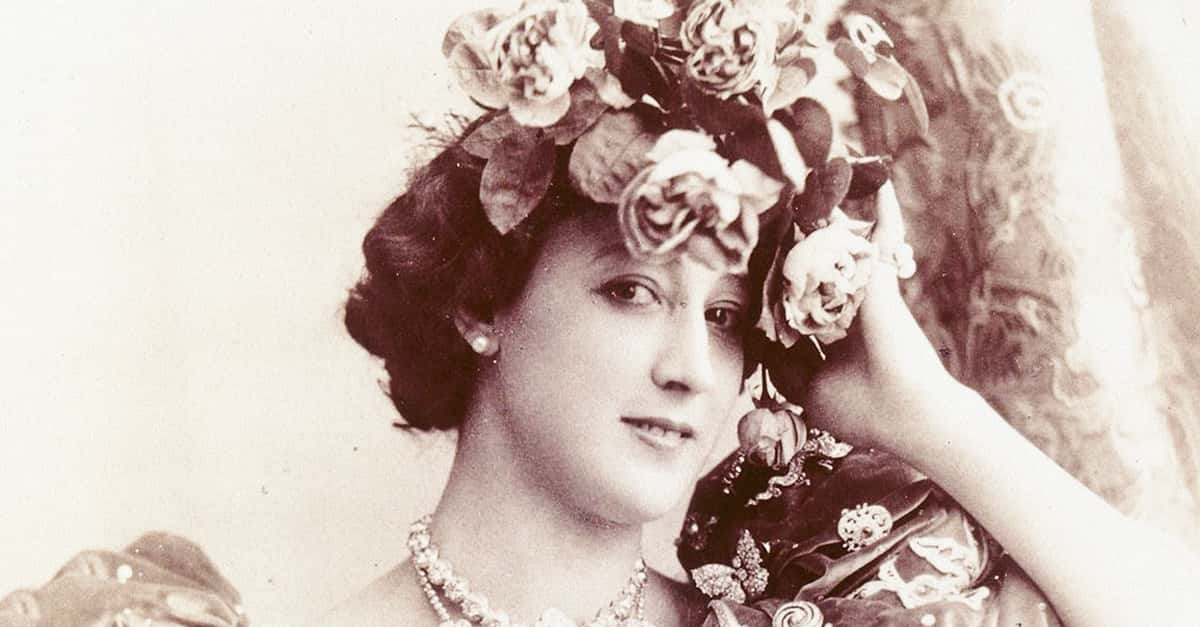The Outrageous Courtesan
Of all the courtesans in mid-19th century France, Cora Pearl was the working girl who turned having a good time into an art form. Her rich and royal lovers spent fortunes for her favor—some to the point of near bankruptcy—and she earned and burned through enough money to make even the most luxury-loving Parisians cry sacré bleu! So what did she have that the others didn’t? Let’s dive into the glamorous facts that made Cora Pearl the It Girl of the demi-monde.
1. She Was Born To Make Noise
Cora Pearl was born Eliza Emma Crouch in Plymouth, UK, sometime in 1835, though she claimed to have been born February 23, 1842. Her parents, Frederick and Lydia, both taught music lessons at home, causing such a constant racket that Cora dubbed her house “The Musical Box", saying, “I was born to hear a great deal of noise, if not to make it". Of course, it wasn’t all a song and dance…
2. Her Father Skipped Town
Cora’s father rivaled her in the scandal department. Frederick Crouch was a family man—but not just one family. He left Lydia in April of 1841 and remarried in 1843 without bothering to get a divorce. Eventually, he took off to New York and married three more times. Meanwhile, Lydia hooked up with her own new beau, a man Cora couldn't stand.
Her mother sent her to school in France, and when she returned in 1854, she moved in with her grandmother to avoid her stepfather at all costs. It cost her plenty—the unimaginable was about to happen.
3. She Met The Big Bad Wolf
One Sunday, when Cora was about 19—though she claimed she was only 14—the maid who was supposed to collect her from church and bring her back to grandma’s house didn’t show up. An older gentleman approached her, introducing himself as a diamond merchant named Saunders. He charmed and flattered her and offered to buy her cake. Cora didn’t suspect he had ulterior motives, but he had something dreadful in mind.
4. She Never Got That Cake
The man brought Cora to a smoky pub and plied her with cheap booze. She passed out in her chair—and when she woke up, she made a disturbing discovery. She was in a strange bed with Saunders getting dressed next to it. Horrified, she knew that her old life was over. He asked if she wanted to stay with him, twiddling his thumbs as he waited for her answer. When she refused, he gave her £5 and left. What Cora did next was truly impressive.
5. She Reinvented Herself
Knowing it was impossible to go back to her old life in her “ruined” state, Cora decided to enter the world’s oldest profession. Far from being helpless, she embraced the idea of independence, saying, “I would be telling a lie if I said [...] separation from my family made me cry”. With her £5, she rented a room and bought some second-hand clothes. She also gave herself the new name Cora Pearl, because she liked the idea of being a gem on a strand of lovers. It would be a very long strand.
6. She Dated The Boss
Cora Pearl soon began frequenting the Argyll Rooms, a once great nightspot that had deteriorated into a seedy pleasure den where men could find some company for the right price. She soon met its proprietor, Robert Bignell, who asked her to move in with him and be his mistress. It was certainly a step up from having to share cramped quarters with dozens of other working girls, but it came with a price.
7. She Didn't Like Him Like That
Bignell was madly in love with Cora, but the feeling wasn't mutual. He was simply a generous means to an end. Sure, he had a way of calling her his “chère Cora” which she found endearing, but it never inspired real passion. When the poor love-struck dope proposed to her, she turned him down flat. She had her reasons.
8. She Hated Men
Understandably, the incident which led Cora to her new career gave her “an instinctive mistrust of men”. In other words, she bore a serious grudge and was determined to use them with no small amount of detachment. While she acknowledged having genuine affection for certain individuals, she laughed off marriage, telling Bignell she “detested men far too much to ever obey one of them”. Still, he was able to make Cora his wife, briefly—sort of.

History's most fascinating stories and darkest secrets, delivered to your inbox daily.
9. She Fell In Love
Cora accompanied Bignell to Paris and he listed her on his passport as his “wife”. After a month of dining, dancing, and touring famous sights like the Arc de Triomphe, the vaults of the Pantheon, and the Bois de Boulogne, Cora was utterly in love—but not with Bignell. Paris was her new fixation, and when Bignell told her it was time to go home, she refused to budge.
10. She Threw A Fit
Cora Peal would sooner have jumped off a bridge than leave Paris—and she went to twisted lengths to stay there. She threw Bignell's passport into the fire and shouted, “You go if you want to. I remain here”. He knew there was no point in begging, so he paid the hotel bill and left without her. She admitted feeling sorry for him, but not sorry enough to return to the dirty old dance halls of England. Paris had all she wanted.
11. Things Were Different In France
France had no problem with women like Cora so long as those who sold their services registered with authorities and submitted to regular, humiliating, health checks. Furthermore, during France’s opulent Second Empire, ruled by Emperor Napoleon III, formerly respectable “fallen” women like courtesans and kept mistresses had their own celebrated class—the demi-monde, or those who lived between worlds.
Cora knew that by playing to society’s fascination with all things theatrical and glamorous, fame and fortune were possible, but success wouldn’t happen overnight.
12. She Wanted More
Cora’s first client in Paris was a sailor named d’Amenard. He was pretty much broke but he amused her, and she had to start somewhere. When he had to set sail, he promised to marry her when he got back. Cora said she’d wait for him—but there was something she was hiding from him. She knew full well she’d never see him again.
Cora wanted lovers who could afford to place and keep her in the lap of luxury. For that, she needed help. Enter Monsieur Roubise.
13. She Got An Agent
Cora’s next client, Monsieur Roubise, was a man in good standing with Parisian high society. He became her “procurer”, introducing her to just the type of affluent customers she’d been waiting to get her hands on. He set Cora up in a nicer neighborhood, taught her the basics of the business, and of course, helped to expand her repertoire of specialty skills. Cora had everything it took to make her very popular.
14. She Stood Out
Cora may not have trusted men, but she sure liked working with them. She earned a reputation for being an enthusiastic lover; an “acme of sensual delights” with an “almost superhuman knowledge of the art of love”. She was no classic beauty, but she had an hourglass figure with a waist so tiny it was no bigger than the span of a man’s hands. But she also had an unexpected secret weapon.
Cora had a brilliant sense of humor and knew how to make bored men laugh. It set her apart from the competition—and there was a lot of it.
15. She Had Frenemies
In a swanky neighborhood near the Champs-Elysées, Cora shared a house with another popular courtesan by the name of Caroline Hasse. Though they mostly got along, but Caroline was a beautiful blonde business rival, and they sometimes had wicked fights. One day, a fire broke out in their complex, and Cora stuck her head out of a smoke-filled window to yell at stable hands below, “I’ll sack the first person who takes a bucket of water to that cow upstairs!”
16. She Landed A Duke
Cora soon met Victor Massena, the wealthy Duke of Rivoli, whom she called “one of the first links in my chain of gold”. He was thoughtful and anxious to please her. Even though he was jealous of her other lovers, he lavished her with designer clothes and jewelry and paid for her living expenses for six years. Massena put Cora on the map, so to speak, and she used his money wisely to stay there.
17. Her Chef Cooked The Books
Now in the position to build her brand by hosting extravagant dinners, Cora hired a culinary genius by the name of Salé to feed her guests. He insisted on doing all the shopping and would hand in bills so enormous she was certain he was running a side business out of her kitchen. Funny, the name Salé means salty in French—but it also means costly. Cora turned a blind eye to it because her parties were the talk of the town, and not just for the food.
18. She Made It Rain
Cora Pearl spared no expense when it came to entertaining. She had so many people clamoring to get into her parties that they literally crawled through the windows. Guests danced, ate, and drank morning, noon, and night. During a two-week rager in Vichy, she spent 30,000 francs on food alone—1,500 of that was for out-of-season violets to garnish a tray of fruit!
When a guest accidentally broke one of her expensive drinking glasses, she laughed it off and broke four more. Sometimes things got so loud, it was scary.
19. She Got Lit
Fireworks were all the rage and Cora loved setting off huge displays from her garden—until disaster struck. She nearly burned down an outhouse. She also handed out firecrackers to guests so they could prank each other and make the room jump with surprise. One party moved over to a casino where the croupiers were so startled out by the sounds of the crackers going off that they flung themselves over the gaming tables to protect the money. Nevertheless, Cora was always welcome at a casino. Well, almost always.
20. She Took Chances
Massena also bankrolled Cora’s gambling habit, which often got her into trouble. In the fashionable town of Baden-Baden, doormen at a casino once refused to let her in because they said her presence would cause a scandal. That afternoon she ran into a powerful friend: Napoleon III’s half-brother, the Duc de Morny. When she returned to the casino on de Morny’s arm, the doormen practically bowed to her as she walked in. Her visit to a casino in Monte Carlo didn’t end quite so well.
21. She Wasn’t Always Lucky
A lengthy stay in Monte Carlo ended with Cora owing a casino 70,000 francs. Not only couldn’t she pay the debt, but she also couldn’t even pay her hotel bill. Desperate times called for desperate measures. She snuck out of her room, leaving all her clothes behind, swiped 500 francs from the hotel’s cash desk, and hitched the cheapest ride home. Don’t judge her too harshly. She paid everyone back eventually. After all, business was booming.
22. She Raked It In
Even though she had a long-term arrangement with Massena, Cora made time for anyone who could afford her company. William, Prince of Orange, heir to the throne of the Netherlands, once paid 5,000 francs for one night with her and gave her a priceless necklace of black pearls which she never tired of showing off.
Prince Joachim Murat showered Cora with money, as did his 17-year-old devoted son, Prince Achille, who gave her one of her most prized gifts: her first horse. It immediately sparked something special in her.
23. She Was Crazy For Horses
Cora claimed she’d never had a riding lesson in her life, so her natural skill as a horsewoman added to her mystique. Admirers likened her to a “centauress” saying she “rode like an amazon”. They also pointed out that she was kinder to her horses than her lovers. But she soon took it way too far. One horse quickly led to 30, then in between 1863 and 1868, she bought 60 more, spending 90,000 francs with one dealer alone.
A journalist called it a “rational form of insanity”. Once Cora had ‘em, she really knew how to flaunt ‘em.
24. She Advertised
The more money a courtesan made, the more she had to spend. Wealthy patrons wanted their mistresses to be status symbols, not secrets. To this end, Cora began taking regular rides through the Bois de Bologne in her magnificent open carriages in order to show off her best assets—both material and physical. In no time, all the courtesans were parading the goods, and respectable high society got into the habit too. It was a great way for Cora to drum up business, and it wasn’t the only trend she started.
25. Who Says Blondes Have More Fun?
Because Napoleon’s wife Empress Eugenie was blonde, it was in vogue for women to copy her look by powdering their hair to make it look fairer. Never one to blend in, Cora decided to dye her hair red, likely with a mixture of ground-up bricks and ammonia. Though some called it “clownish”, red soon became the next craze. She didn’t just dye her hair though.
26. She Color Coordinated
Cora once dyed her dog’s fur blue to match one of her outfits. She also dyed her hair lemon yellow to match the satin lining of her carriage. Okay, so that may have been a case of making a mistake work. Bleach wasn’t a thing yet and sometimes sulphuret of potassium, used for dying hair black, turned hair yellow if it wasn’t fresh. She pulled it off with humor and style, but some felt Cora’s whole look was way too much.
27. She Made Up
Boy, did Cora slather on the makeup. Jean Philippe Worth, son of the famed couturier Charles Worth, wrote that her face was always “shockingly overdone” and said she looked better at a distance. Geez. It worked for her, didn’t it? She at least got points for originality because she pretty much invented highlighter. She’d apply a mix of metallic powders and starches with swan down to make her forehead, eyelashes, and body shimmer. The shinier the better—to lure in the big fish.
28. She Was Worth It
Remember the Duke de Morny from the casino? After Cora and Massena parted ways, he was the next major link in her golden chain of lovers. She genuinely liked him, and what wasn’t to like? Handsome, charming, and powerful, de Morny had his choice of mistresses, but Cora’s wit, on top of her other talents, made her his favorite. On his arm, she rose to even greater celebrity—with a wardrobe to match. Her designer Worth gowns cost between 1,600 and 2,500 francs a pop. Just wait until you hear what her underwear cost.
29. Sheer Brilliance
Cora bought only the finest lingerie, but in 1864, she sued boutique owner Madame Roux des Florins, arguing a bill for six negligées totaling 9,500 francs was excessive, even for her. To prove her point, she stirred up a major scandal. She displayed her seductive undergarments in court as evidence, causing such a kerfuffle it made headlines back in England. Not only did she get 1,000 francs knocked off the bill—but she also got tons of priceless publicity.
30. Not That Napoleon. Another One.
Following the untimely demise of de Morny in 1865, Cora became the main squeeze of Prince Napoleon Joseph Bonaparte—the cousin of the sitting emperor. He was rude and really disliked, but Cora insisted “he was an angel to those who pleased him”. He was besotted with her, and even though he had a wife, he had jealous fits about her other lovers—the hypocrite.
Cora would never belong to any one man, but it was in her best interest to keep this prince happy.
31. There Were Risks and Rewards
Whenever Prince Napoleon felt like Cora wasn’t giving him enough attention, he sulked and threatened to deport her. She had to make up excuses, like twisting an ankle, when she wanted to see other clients. But he gave her a hefty allowance of 12,000 francs a month, bought her two fabulous houses, and made her one of the wealthiest women in France. What did she do with all that money? She threw more parties, of course.
32. She Carried On
Cora Pearl was never more popular than she was during the last half of the 1860s and she was living it up like there was no tomorrow. At one over-the-top party, she shocked her guests by serving them flaming punch in a silver chamber pot. At another, she dressed like a sailor and danced a horn pipe over a carpet of exquisite orchids Prince Napoleon had sent her. What she did with another of his gifts was even more outrageous.
33. She Liked A Bubble Bath
Napoleon outfitted one of Cora’s mansions with a beautiful, custom-made bronze bathtub, personalized with her monogram of three intertwined Cs. She used to fill it with champagne and invite house guests to keep her company while she had a soak. It seemed she never missed an opportunity to show off her famous body. For example...
34. She Served Looks
Cora Pearl once famously invited dinner guests “to cut into the next dish” before four large footmen served her to the table on a silver platter wearing nothing but parsley. She also showed up to a restaurant’s costume party dressed—or undressed, rather—as the biblical Eve. If you think that’s body confidence, hang on to your fig leaves.
35. She Took A Bow
Cora made her stage debut as Cupid in an operetta performed at the Théâtre des Bouffes Parisiens in 1867. The audience, filled with present and past lovers—and probably most of their wives—gasped when the curtains parted revealing Cora wearing strategically placed diamonds and not much else. It didn’t matter that she was a terrible singer. She kicked up her heels as she made her exit showing she wore diamonds on the soles of her boots as well. But that didn’t mean she quit her day job.
36. Clients Got Creative
Cora Pearl was so in demand that she’d fully turned the tables on her wealthy clients--now it was her suitors who felt they needed to stand out in order to make the cut. Gifts became more extravagant and imaginative than ever. Someone sent her a box of candied chestnuts, each one wrapped in a 1,000-franc note. Another gave her a book, also with 1,000-franc notes in between every page, and yet another gifted her a silver horse filled with precious gems and gold. It was said she was earning 50,000 francs a month. So how did she keep track of it all?
37 She Did Her Own Bookkeeping
To manage her business, Cora kept a ledger where she wrote down the names of her clients, the dates of their appointments, and how much she earned for her services. Someone once caught a glimpse of the open book and noticed Cora also kept a column for special notes. Let’s just say not all of her gentlemen callers got a five-star rating and the reasons why fit neatly in the margins. But the good times—and even the so-so ones—sadly weren’t meant to last.
38. The Empire Fell
In July of 1870, France lost its cool over Prussia’s candidate for the throne of Spain and picked a fight with serious consequences. The battle was short-lived, with Napoleon surrendering on September 1 of that same year. The ensuing siege of Paris by the Prussians on September 19 began with little warning. Cora just had enough time to get eight of her beloved horses out of the city by pretending they needed a little exercise. Her beautifully cultivated world would never be the same again.
39 She Opened A Hospital
During the occupation—and despite her occupation—Cora showed a surprising side. Like many of her courtesan peers, Cora Pearl turned one of her homes into a hospital to help nurse and feed the wounded. The injured slept in her eight luxurious bedrooms. She tore up her finest linens to use for bandages and shrouds.
She even paid for funeral expenses out of her own pocket. All in all, the experience cost her 25,000 francs. While she may have ponied it up—she wasn’t exactly gracious about having to foot the bill.
40. She Wanted Recognition
A truce in January of 1871 set the Parisians free. Now the decadence of the Second Empire which had indulged the demi-monde lifestyle was cause for much resentment. While others received honors for their sacrifices, all Cora got was dirty looks. Insulted, she went to court to demand repayment. She got 1,500 francs—and even more dirty looks.
Later, she regretted being so petty, saying the best reward was the gratitude of those she helped. But at the time, the humiliating hits just kept on coming.
41. She Wasn’t Welcome
Like the rest of the Imperial family, Prince Napoleon was living in exile. He wrote to Cora often from Florence, and in early 1871, they arranged a reunion in London—her first trip back to England in 20 years. She booked a suite at the Grosvenor Hotel, but she didn’t exactly get a warm welcome.
When the manager recognized her, he threw her out without returning her deposit! Who’d have thought over 100 years later, they’d try to make it up to her?
42. Suite Justice
On February 23, 2012, the Grosvenor Hotel dedicated The Cora Pearl Suite to its most famous cast-out customer. Details like glass chandeliers and feather-trimmed lamps still imitate the French decor of the late 19th century. Not only does the room have a replica of Cora’s bronze bathtub, but there’s even a giant oil painting of Cora over the bed. A little bit of revenge from beyond the grave—Cora would’ve loved it.
43. Cora Plucked The Wrong Pigeon
In 1872, Cora, who was now 37 but pretending to be 30, became the obsession of 27-year-old Alexandre Duval, heir to his family’s restaurant chain fortune. Totally infatuated, he burned through his inheritance and nearly lost his business paying for Cora’s rent and buying her ridiculously expensive presents. When the money ran out, Cora cut him off and he lost it. He decided it was her turn to pay.
44. Danger At Her Doorstep
Duval made several attempts to see Cora, but she refused to see him. She had no idea how unhinged he truly was. On December 19, 1872, after pacing for hours in front of her home like a lovesick madman, he forced his way into her house. He confronted her with a pistol pulled from his coat. It went off, gravely wounding him in his back and lung.
Reports claimed Cora’s only concern was that he got blood all over her carpet. Shocked society clearly wanted Cora to be the villain.
45. Somehow It Was All Her Fault
Duval got all the sympathy. His family nursed him back to health, but people blamed Cora for causing the ruin of yet another upstanding citizen. Authorities deported her, and some of her best clients, to save their own reputations, were the first to tell her not to let the door hit her on the way out. Leaving France was the beginning of a downhill slide from which Cora would never really recover.
46. Napoleon Called It Off
Cora couch-surfed her way through Monte Carlo and Nice before briefly reuniting with Prince Napoleon in Milan. He continued to send her what money he could, but with his own finances dwindling, he wrote to her in 1874 and with regret and affection, ended their relationship for good. Cora was in a pickle. She was eventually able to return to Paris, but she was in debt up to her eyeballs. Something had to be done.
47. She Sold Her Pretty Things
In May of 1877, Cora sold some of her most valuable possessions at an auction, but the sum raised was only enough to pay off her debts. She downsized to a smaller apartment where she continued seeing clients, but they were hardly the type she was used to. One man skipped out on her without paying his bill, and many admirers who couldn’t afford her tried wooing her with poetry stuffed in her mailbox.
She couldn’t live on love letters, so she tried her luck at casinos again and hit a new low.
48. She Was Down On Her Luck
Julian Arnold, an old friend of Cora’s, saw her one night in 1881, weeping on the curb outside a Monte Carlo casino. She told him she was broke and had no place to stay. Arnold took her back to his villa for a hot meal and a good night’s rest. Later, Cora found him in his study and flashed him by surprise. It wasn’t an offer, but rather to show him she may have lost her money, but not her money maker. Cora was never one to wallow in self-pity.
49. She Told All
In 1886, Cora Pearl sold her memoirs for some much-needed cash—but there was so much more to her plan than literary fame. She also gave former lovers the chance to remain anonymous for the right price. Descriptions of her in this last year of life vary between an aged-out courtesan living in squalor, and a still cheerful woman visited often by friends in her comfortable apartment above a carriage shop.
What is certain is that on July 8, 1886, at the age of 51, she succumbed to intestinal cancer, just four months after the publication of her book. Some of her last words really stick with you.
50. Her Independence Was Everything
Cora’s gravesite has long since disappeared, but her memoirs remain. In them, she claimed to have had a truly happy life. She regretted her decline into poverty, true, but said she would’ve regretted a quiet life more. And at the end of it all, she could still hold her head high. “I have never deceived anybody, because I have never belonged to anybody. My independence has been all my fortune, and I have known no other happiness; it is still what attaches me to life. I prefer it to the richest necklaces”.

